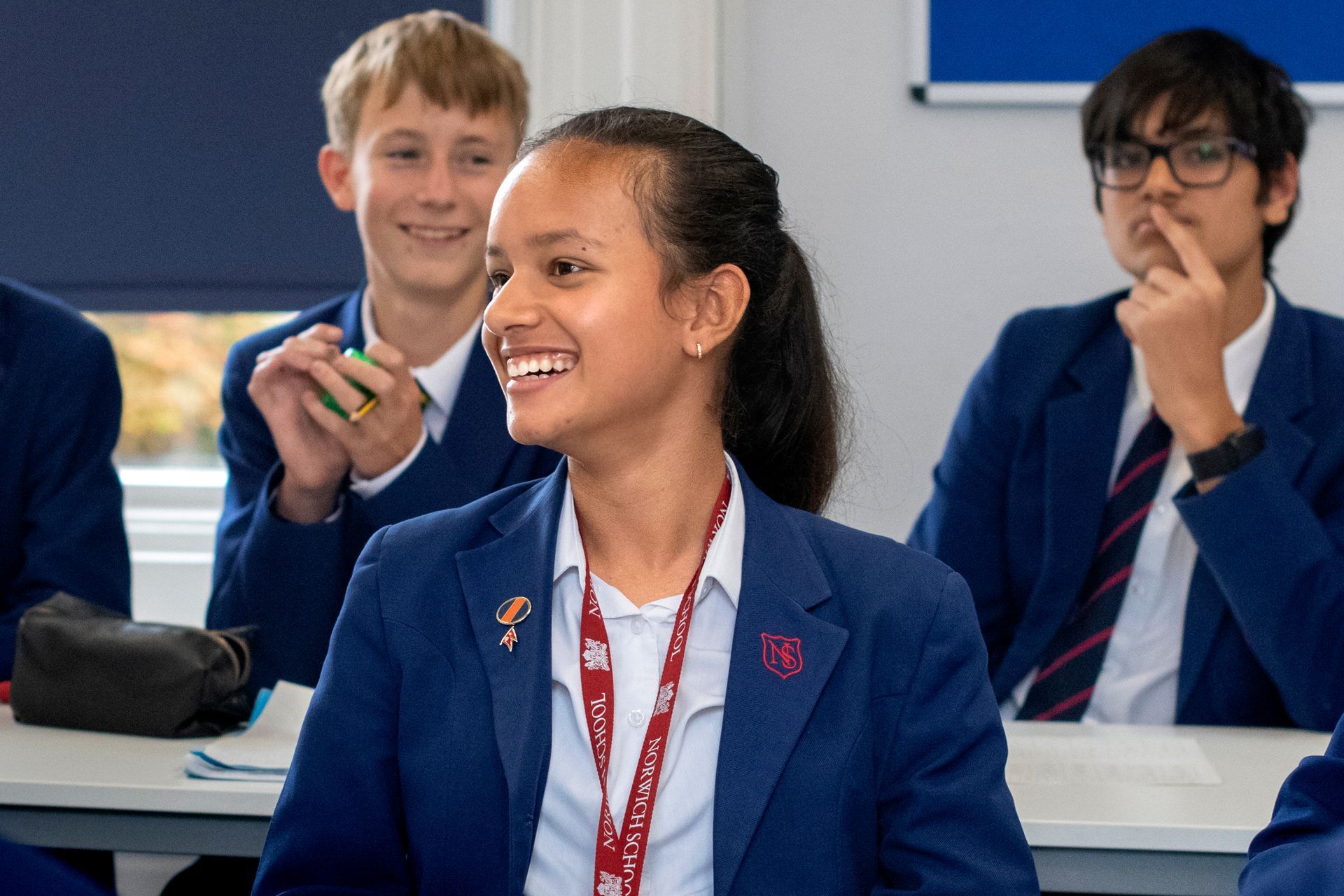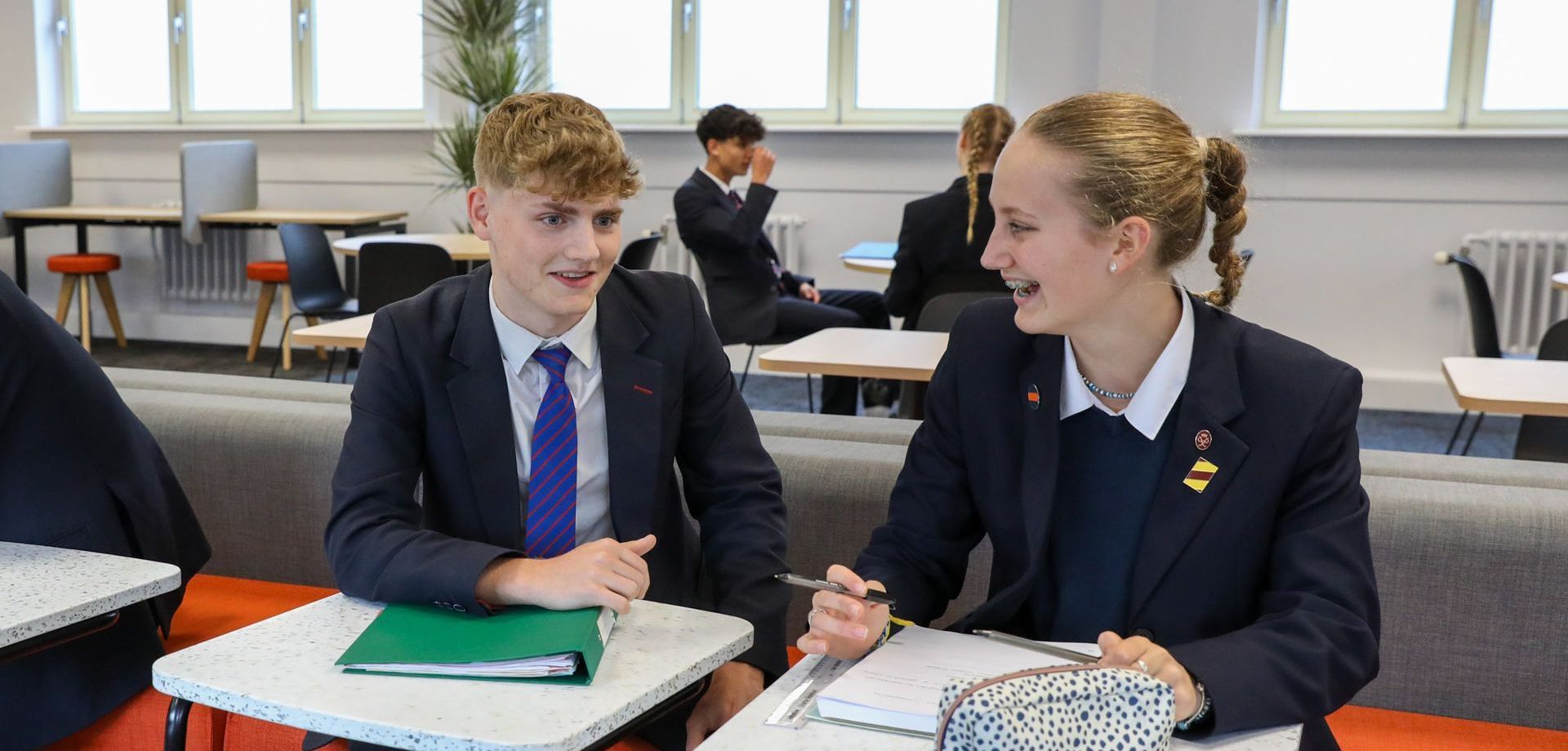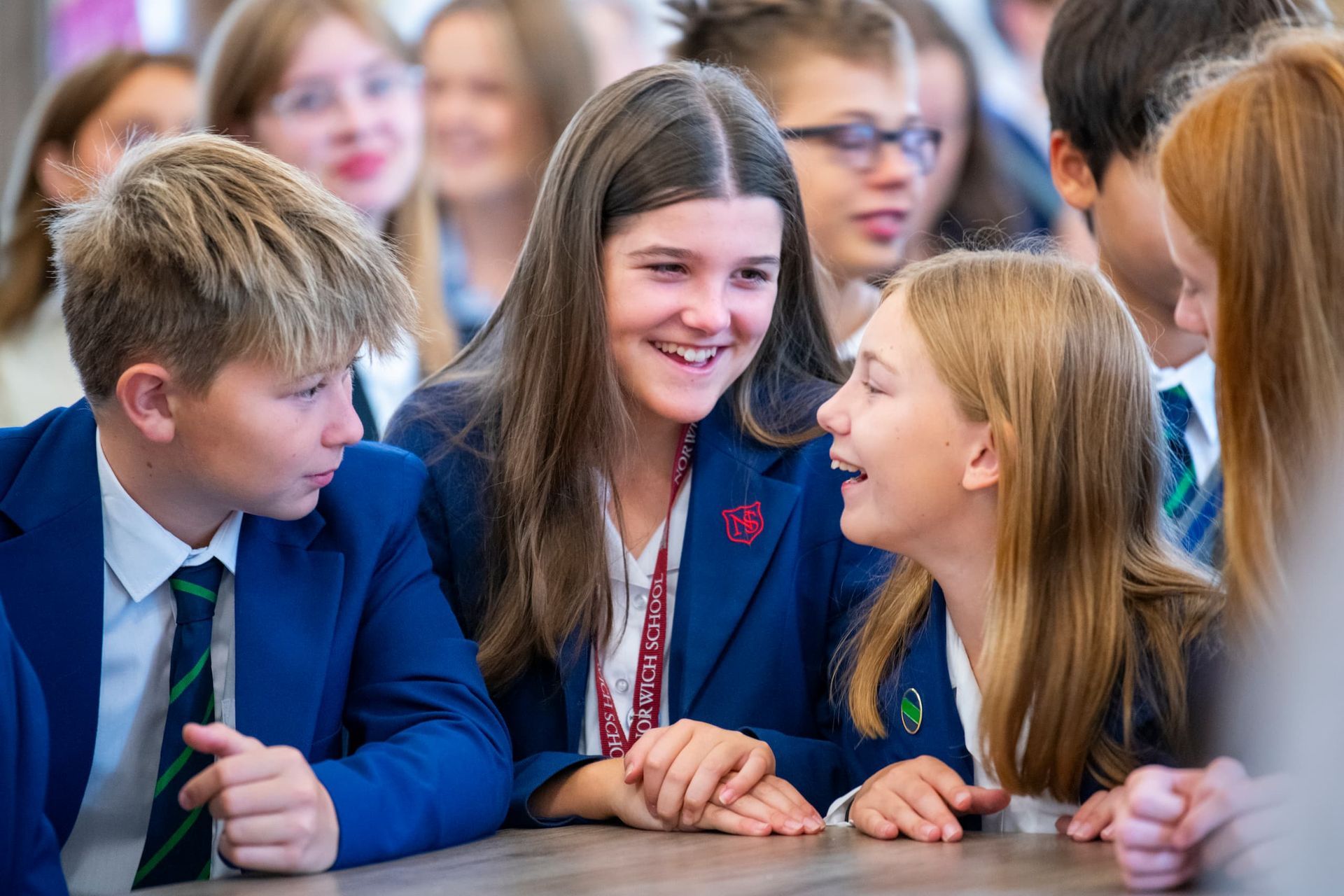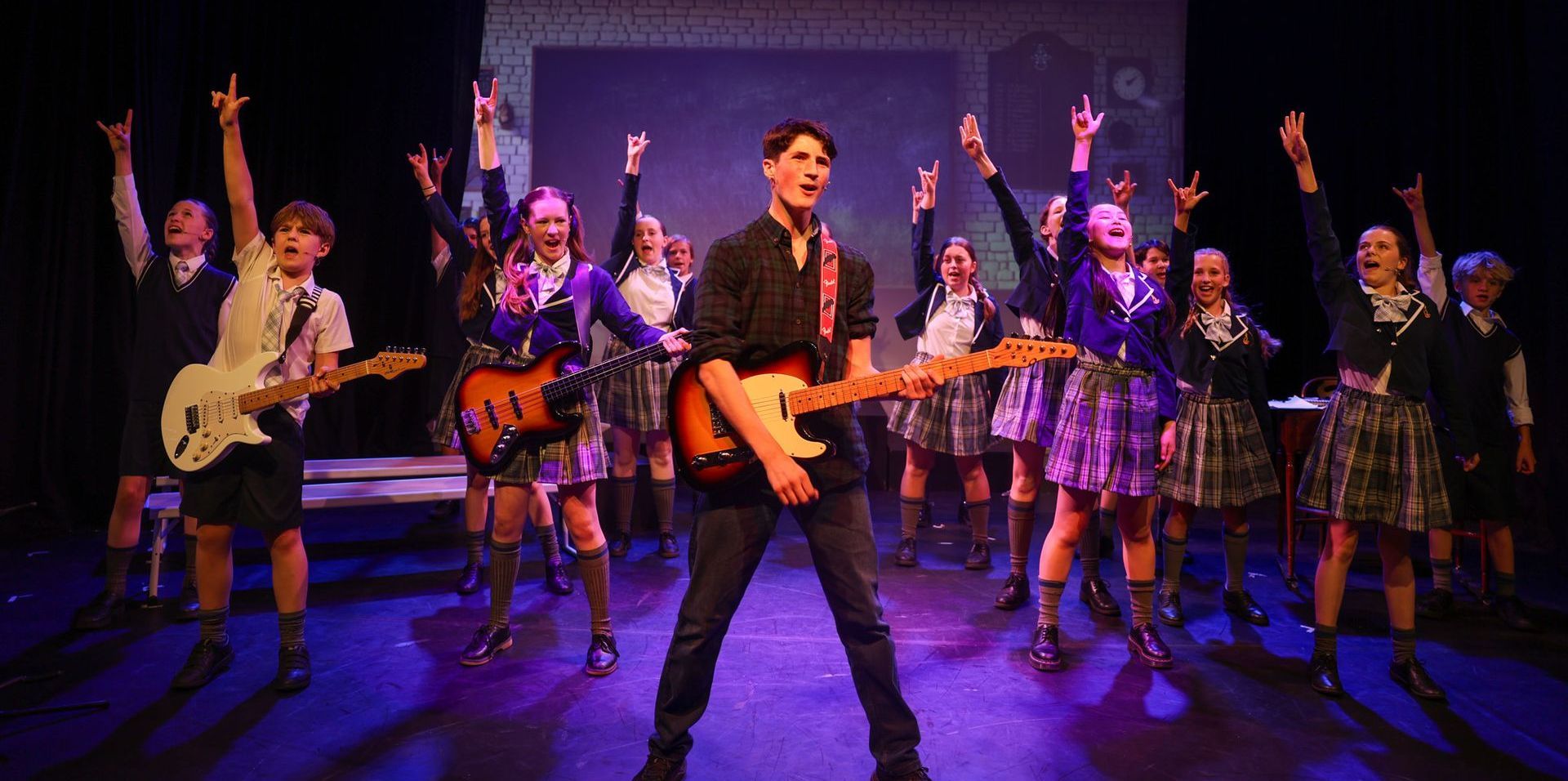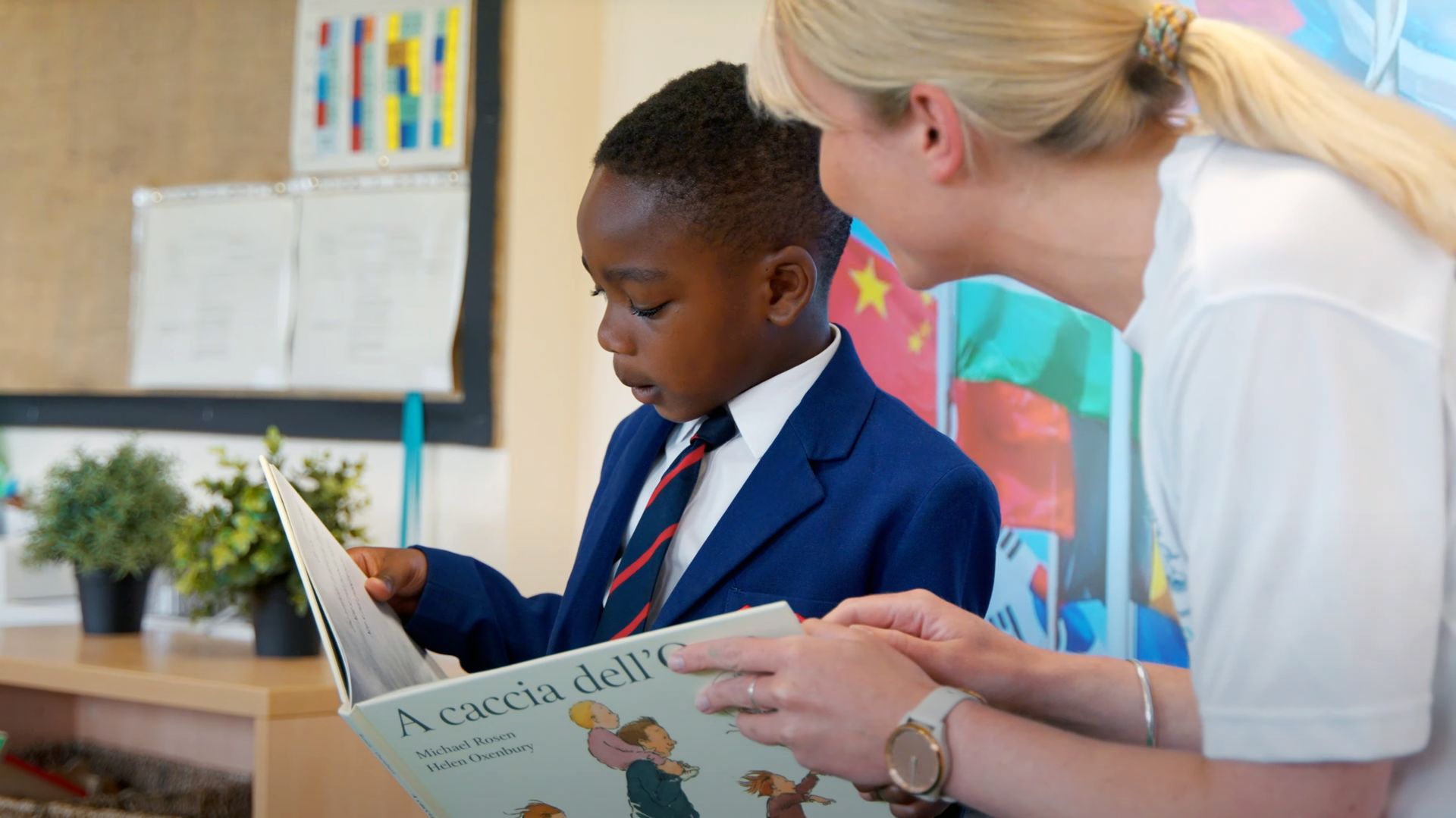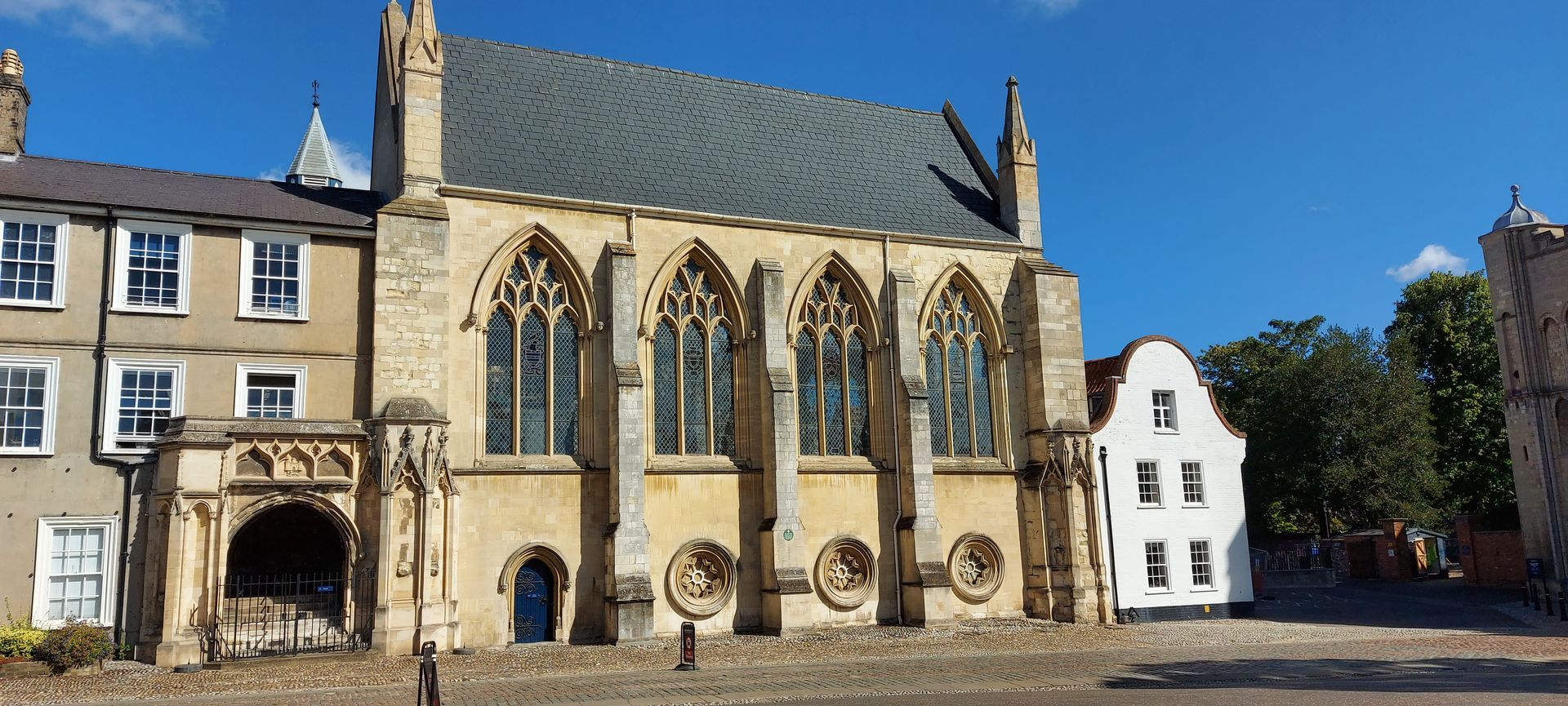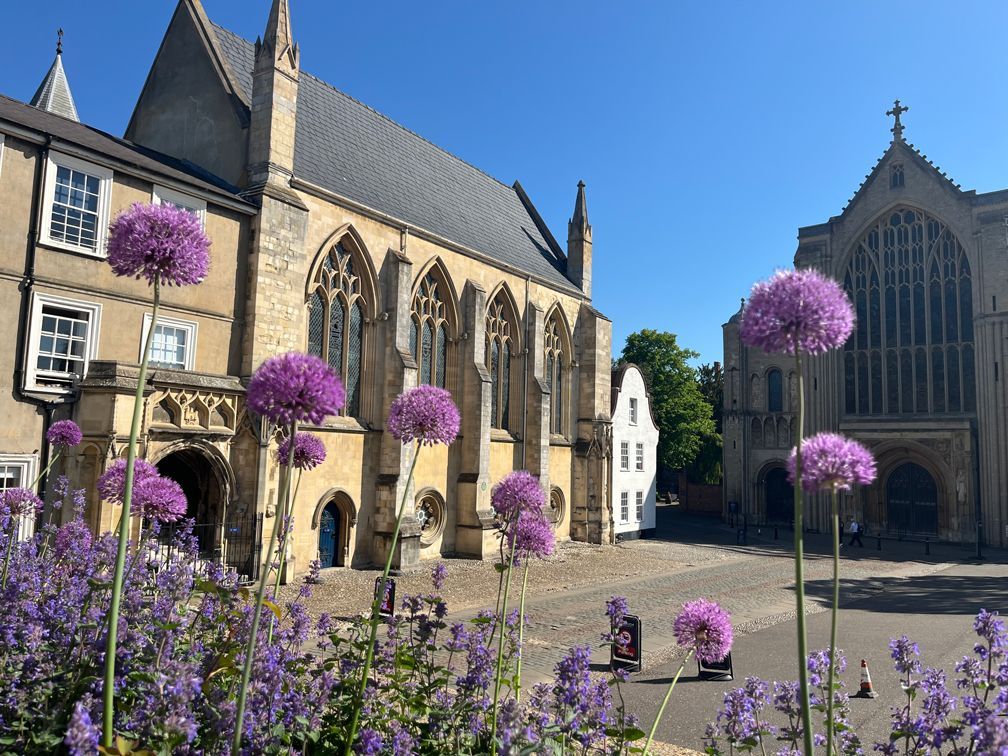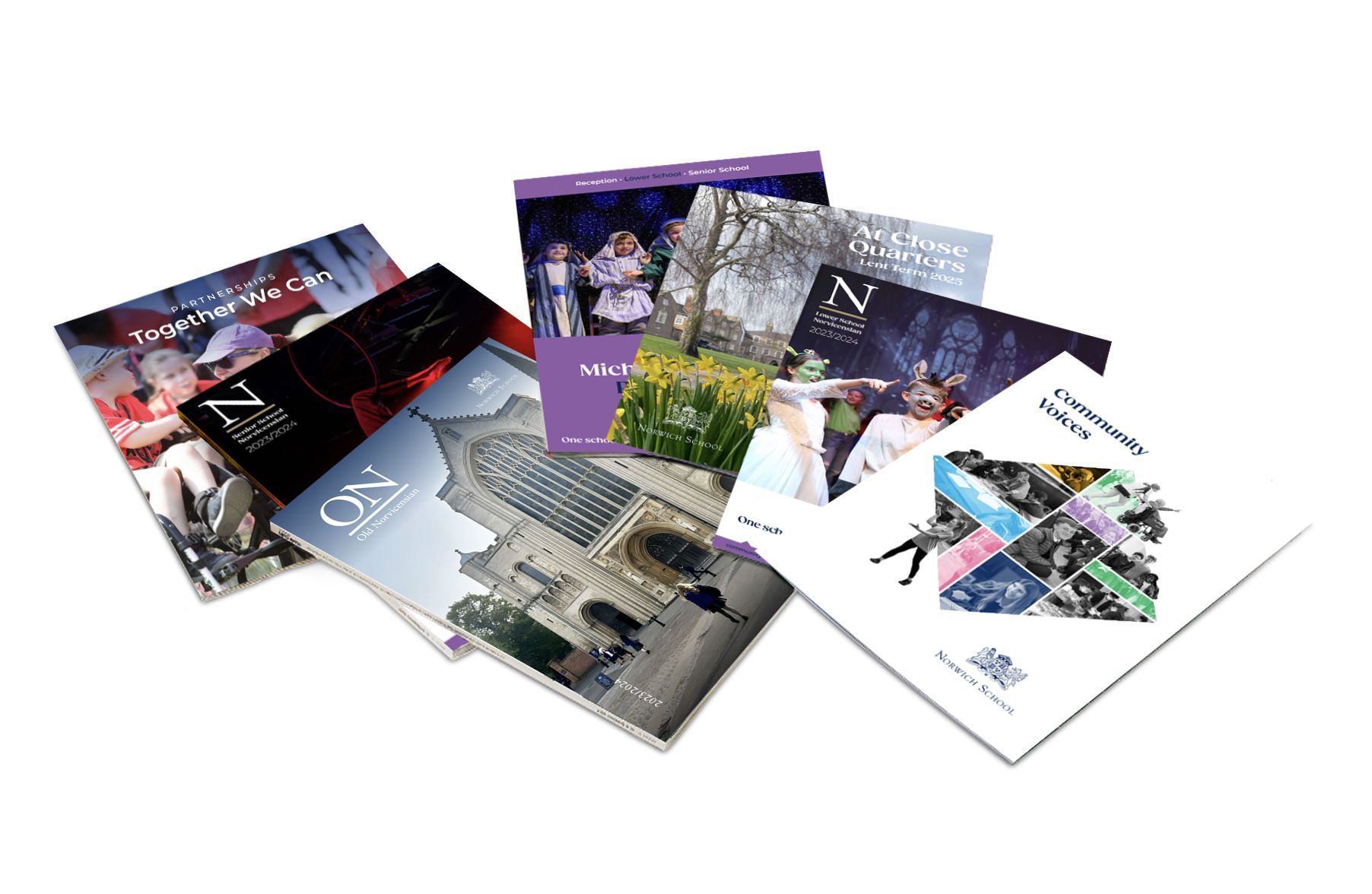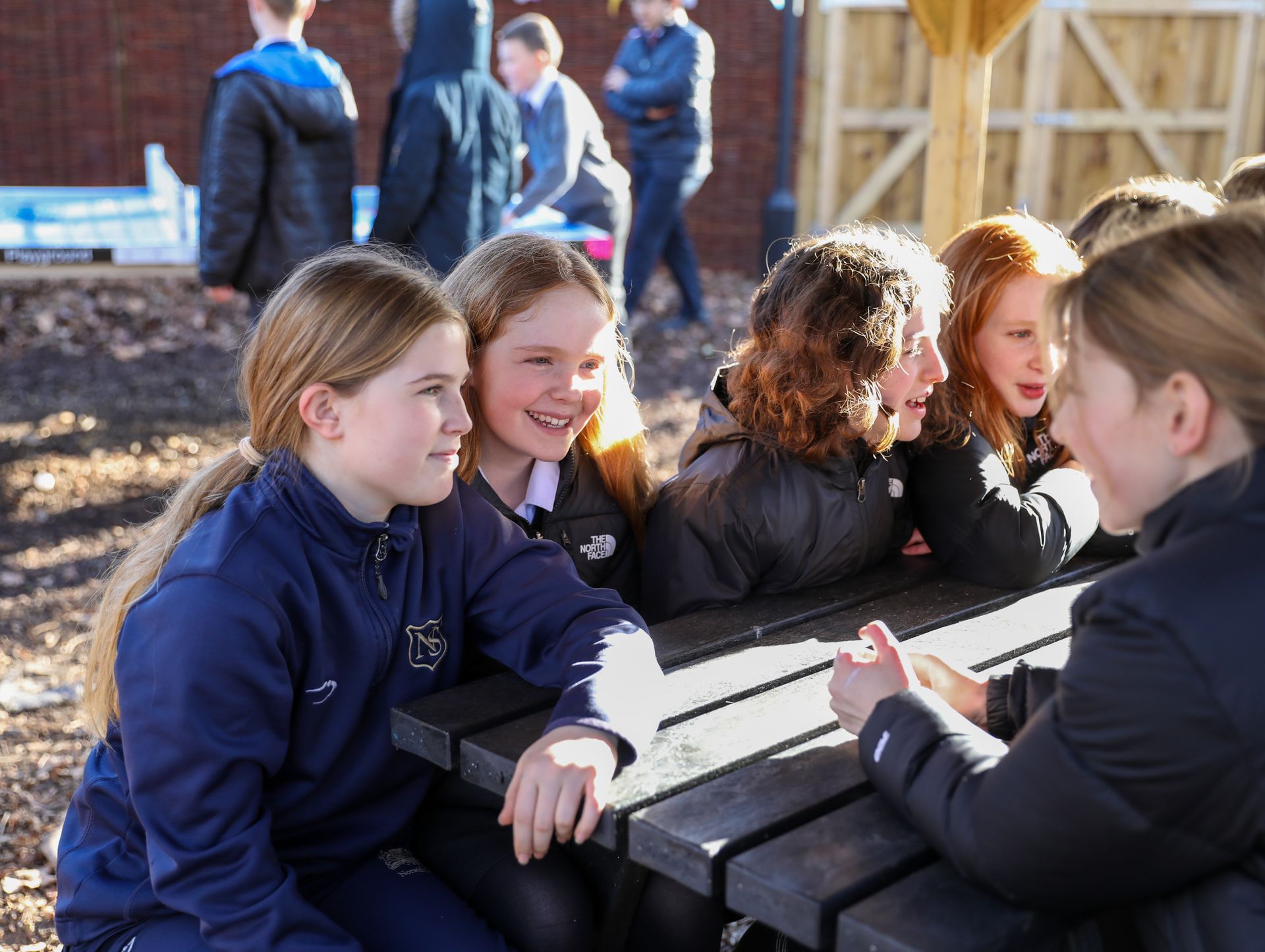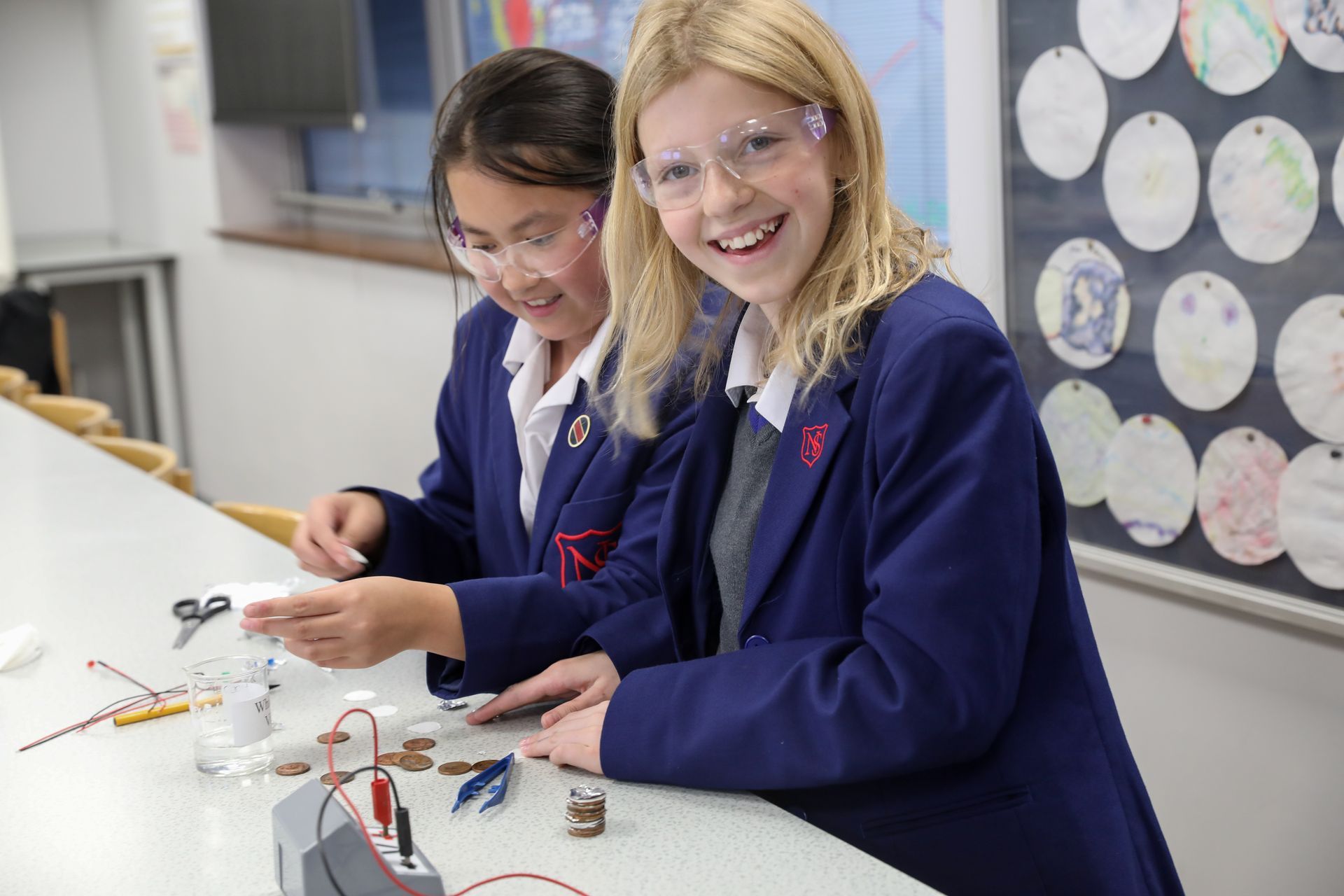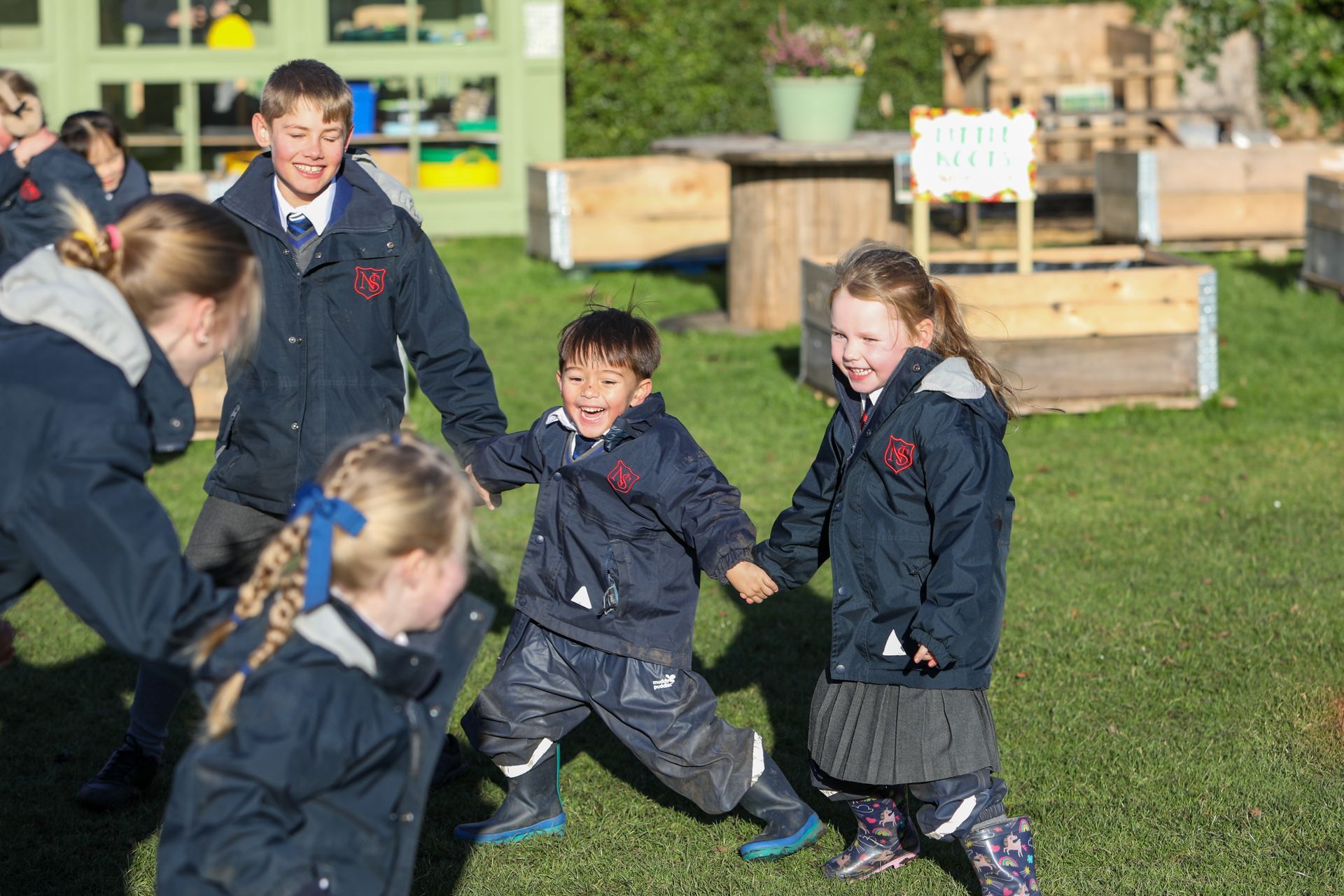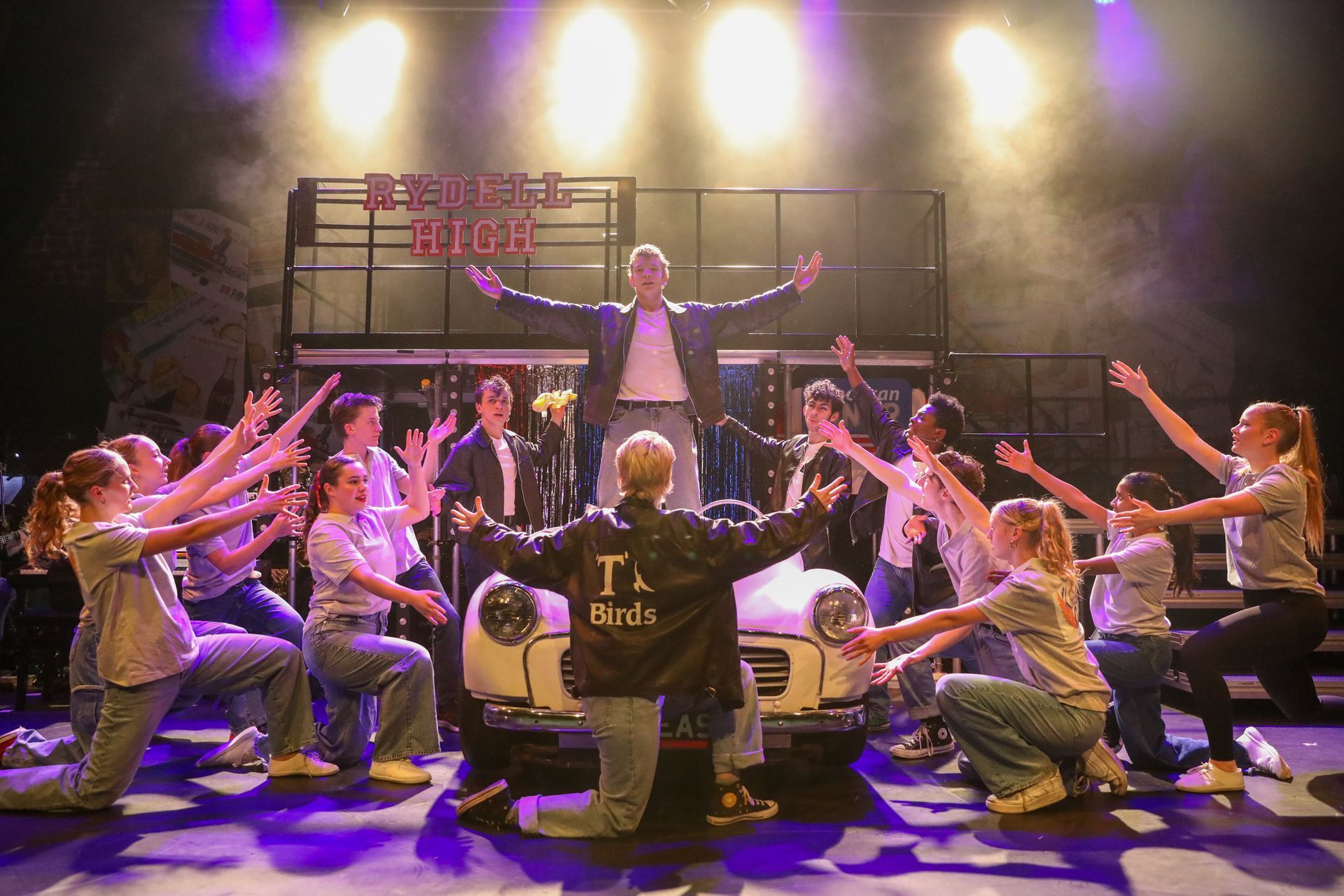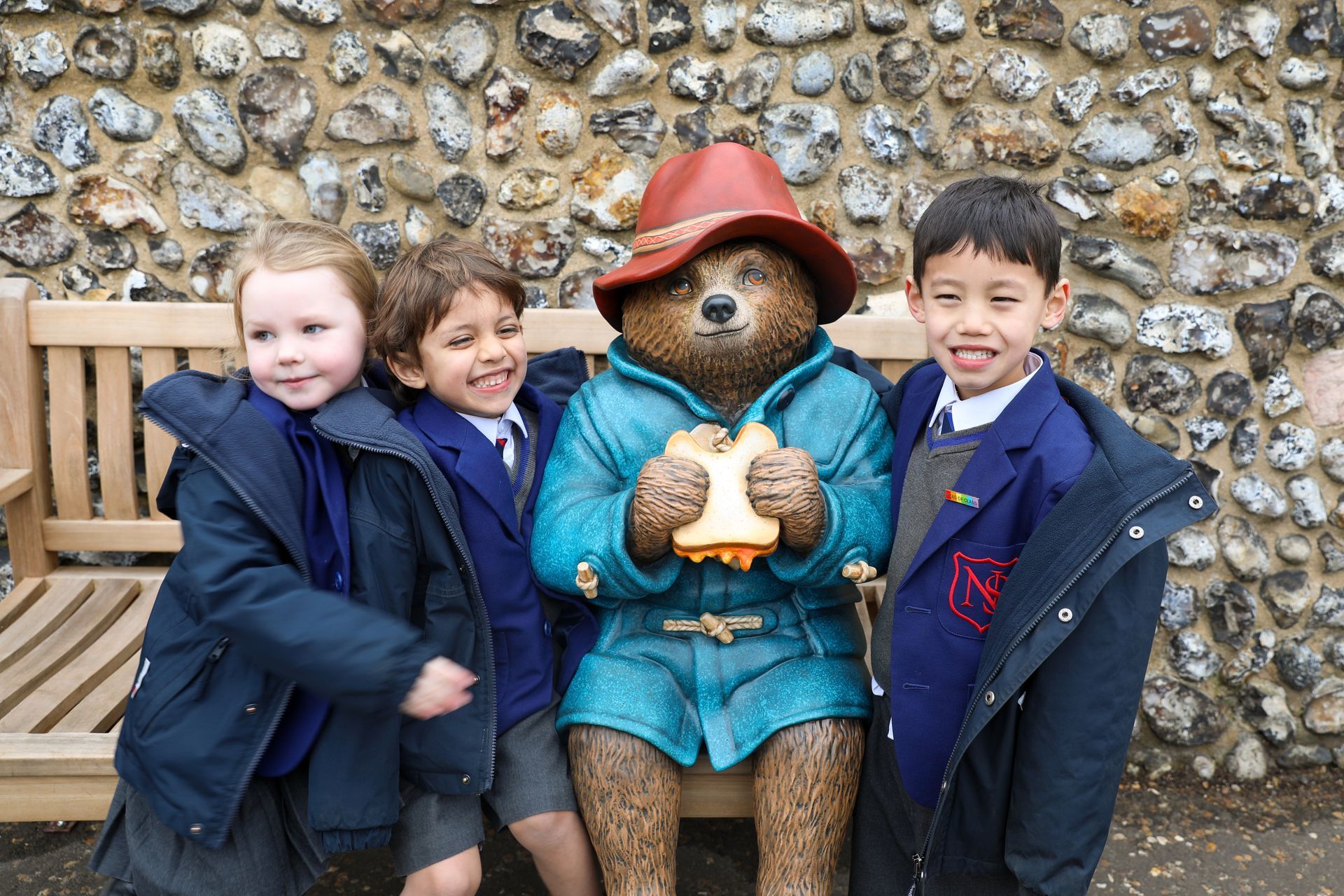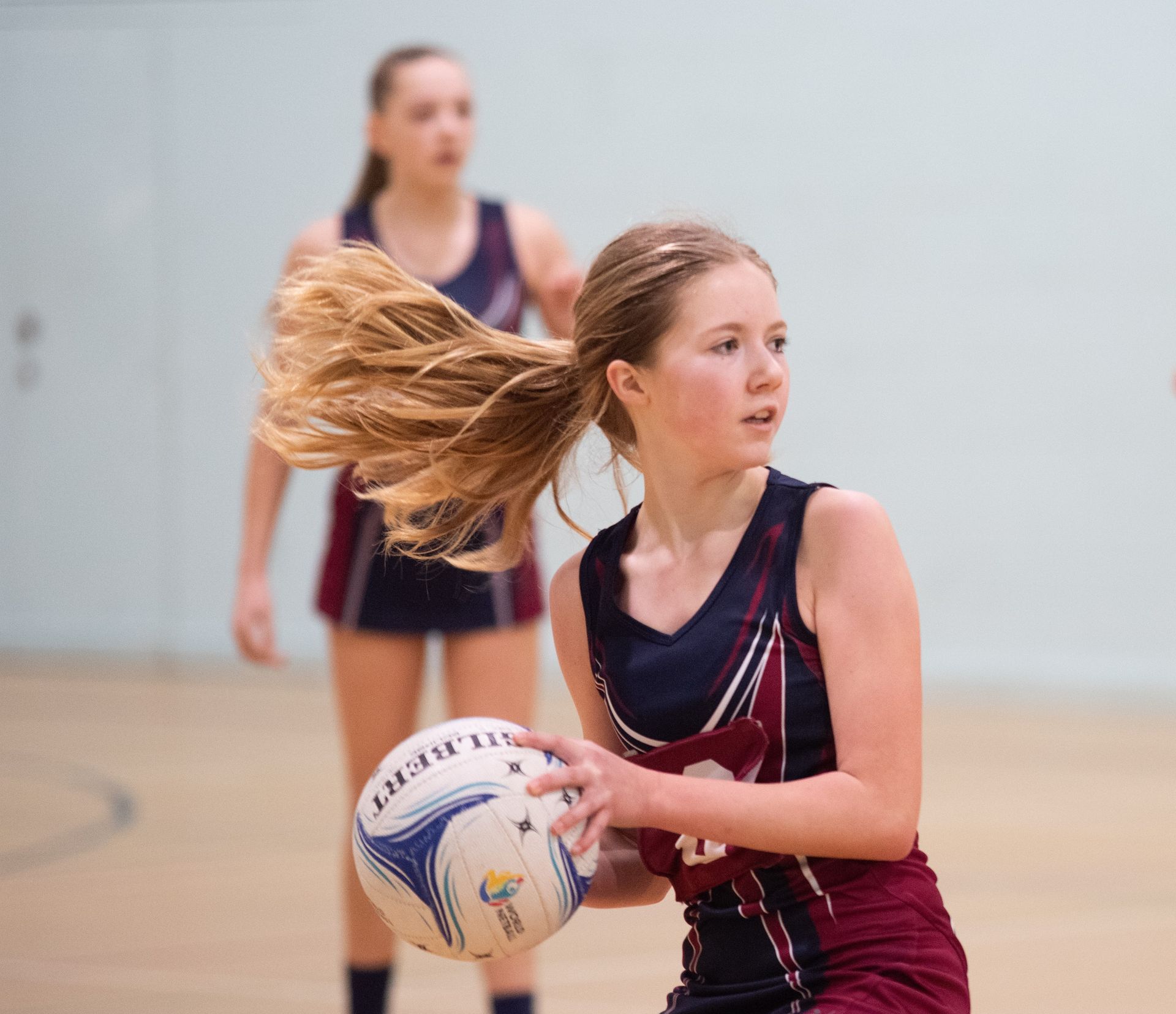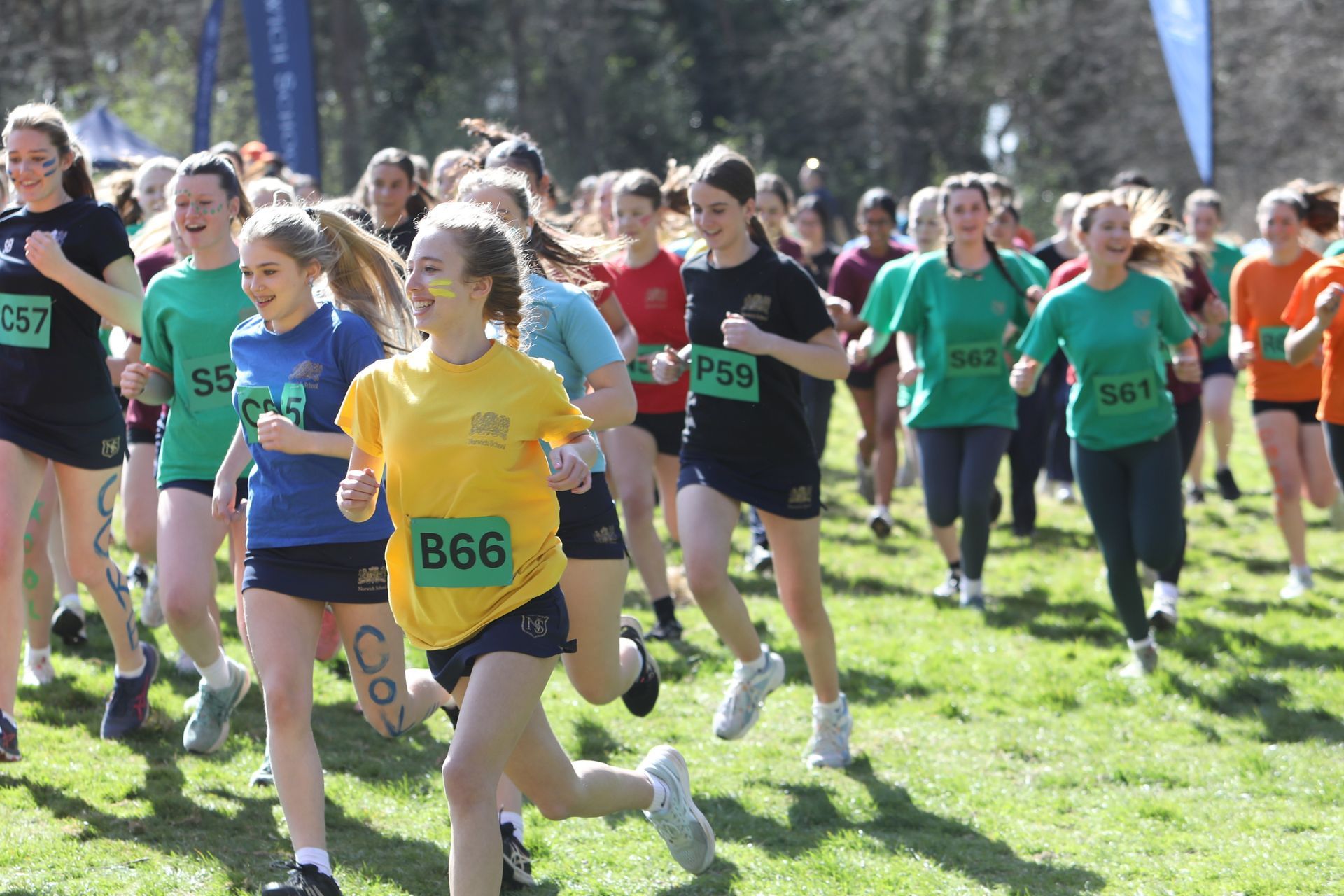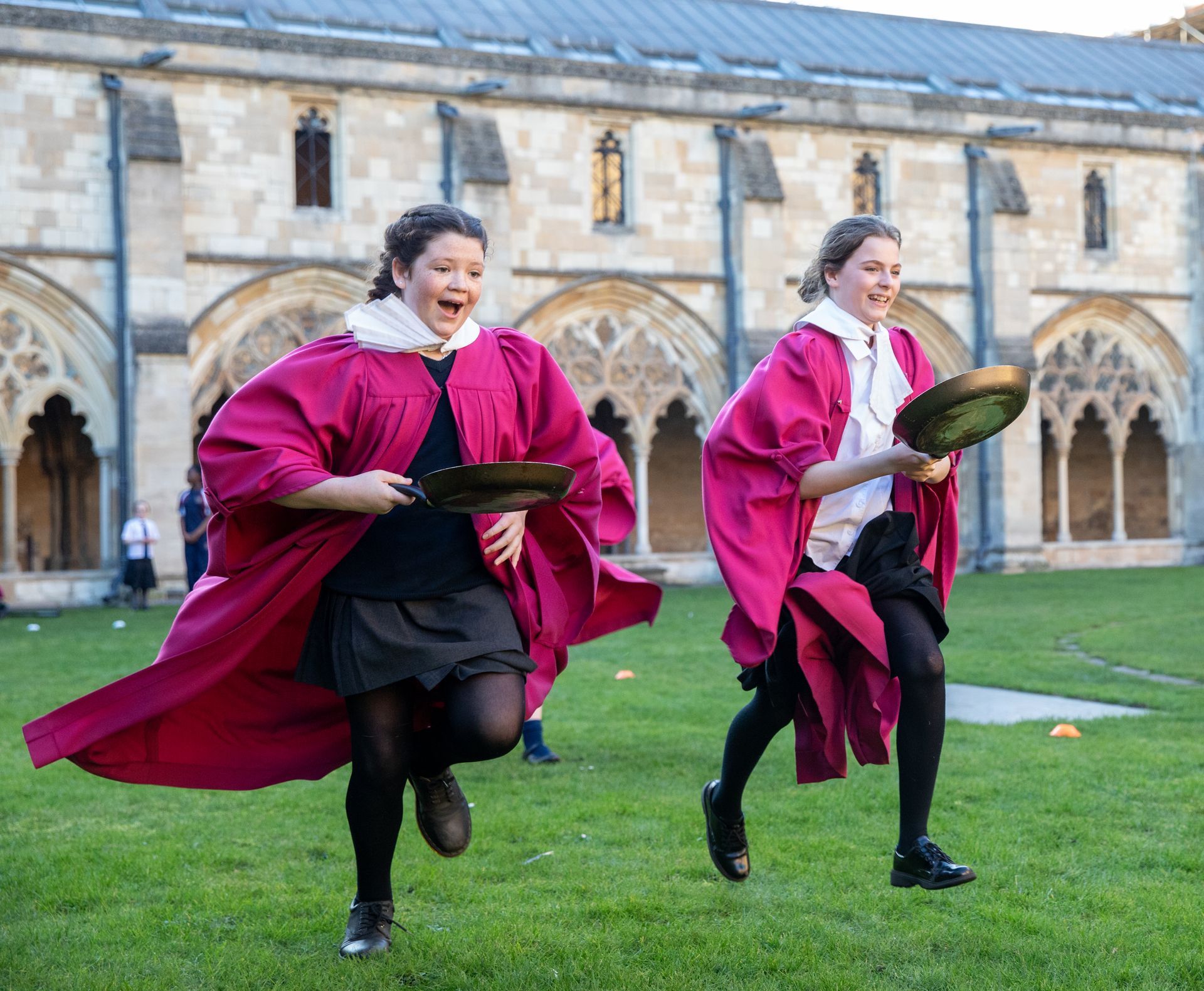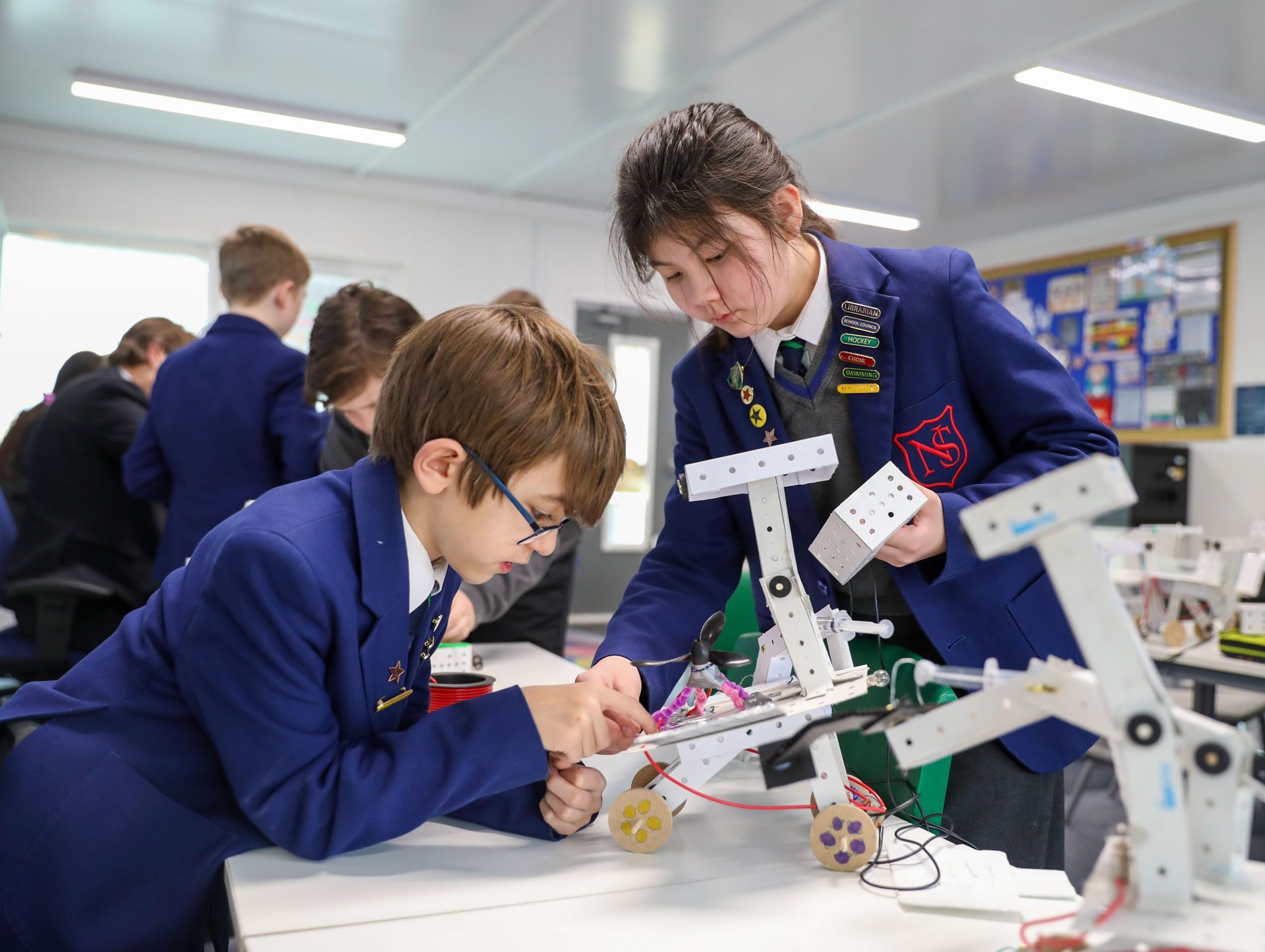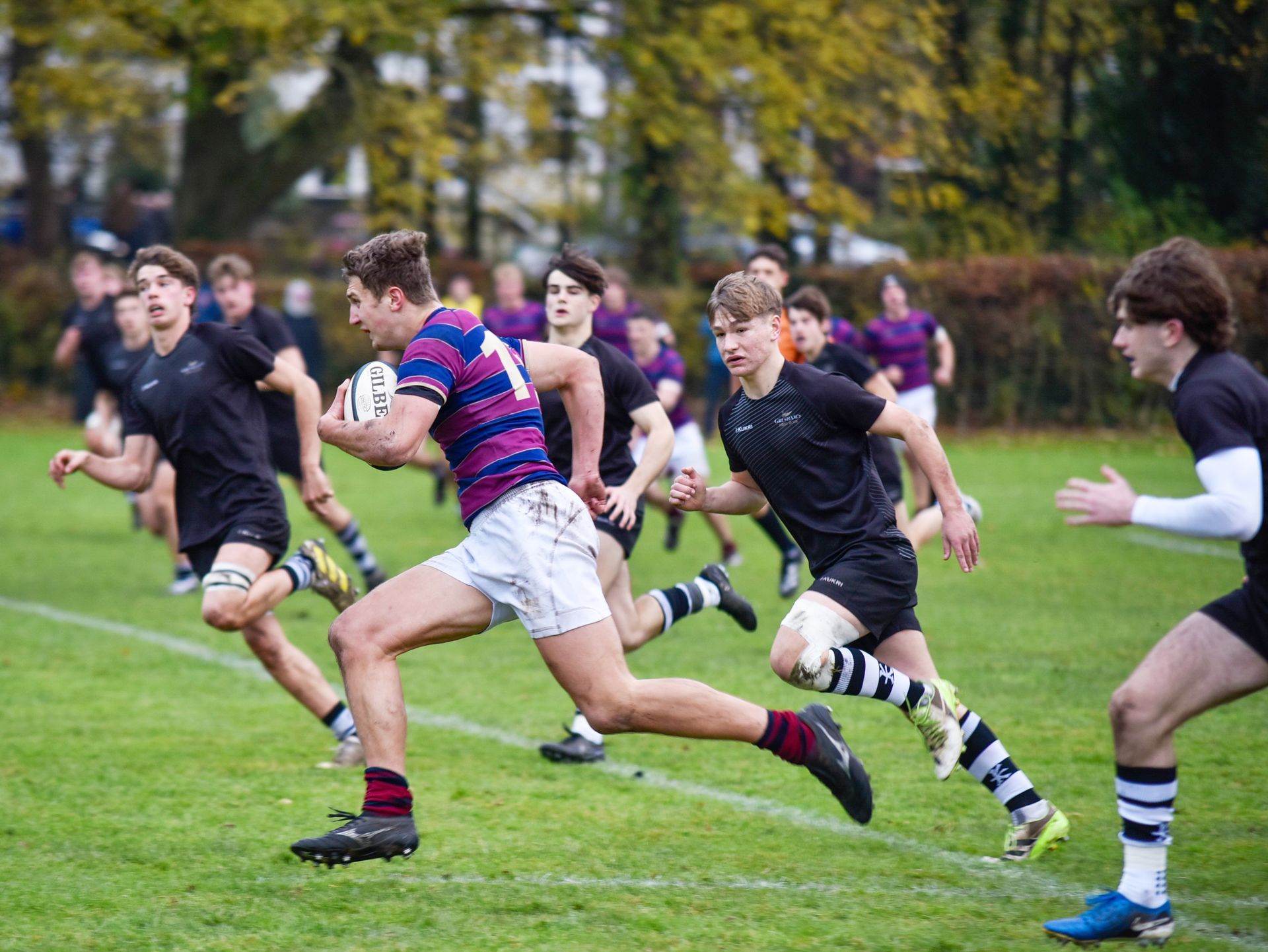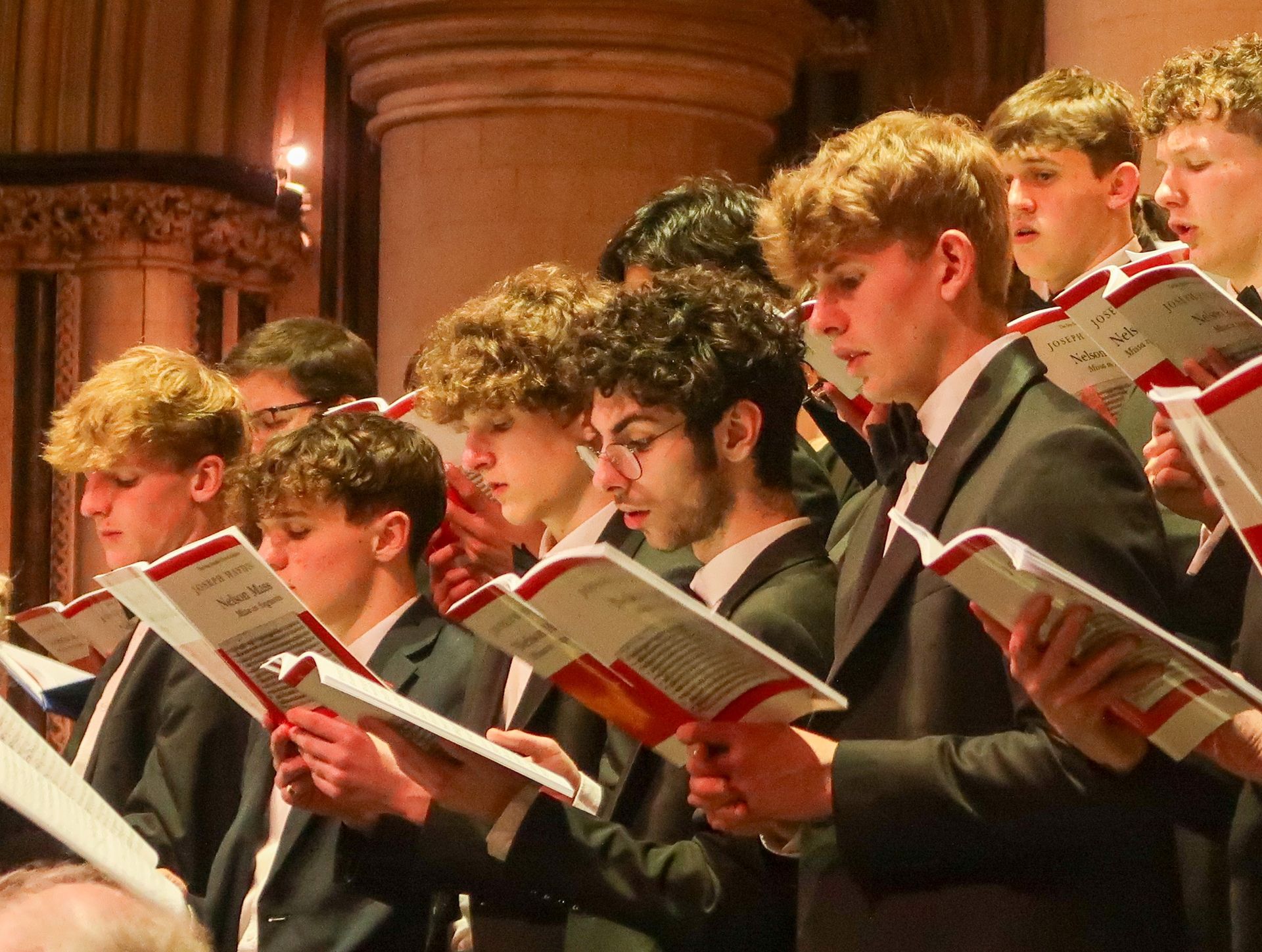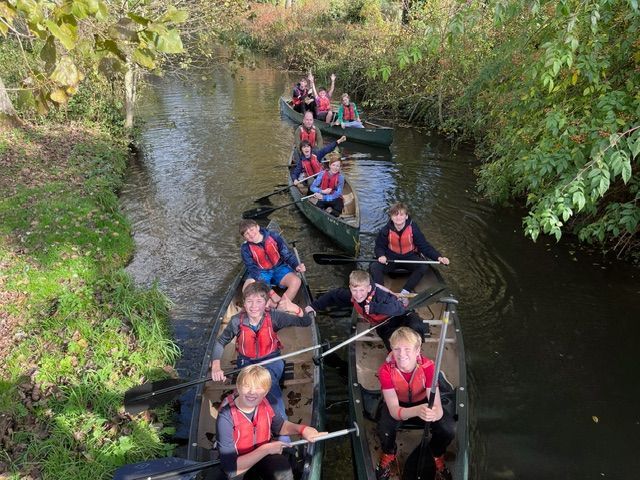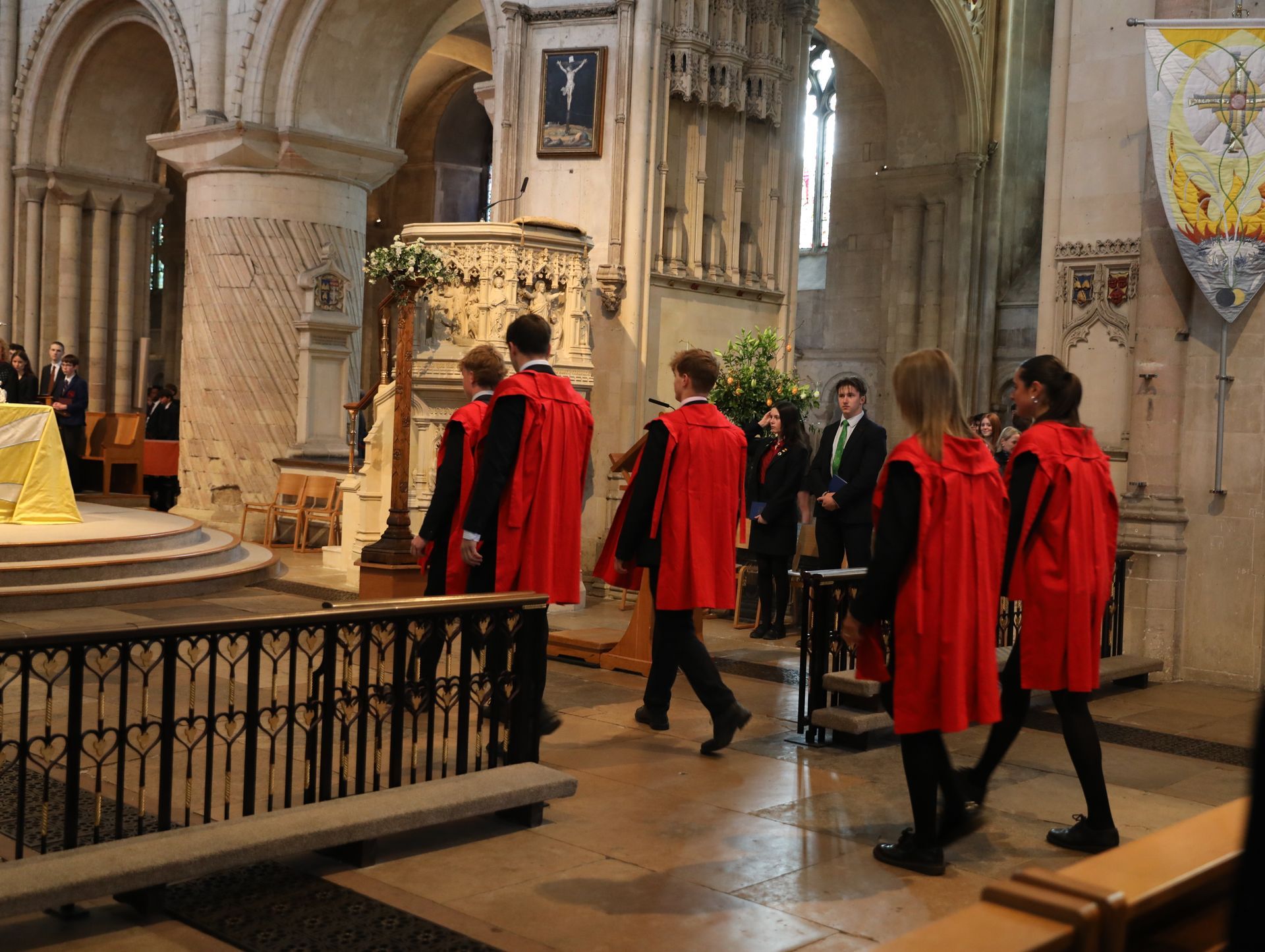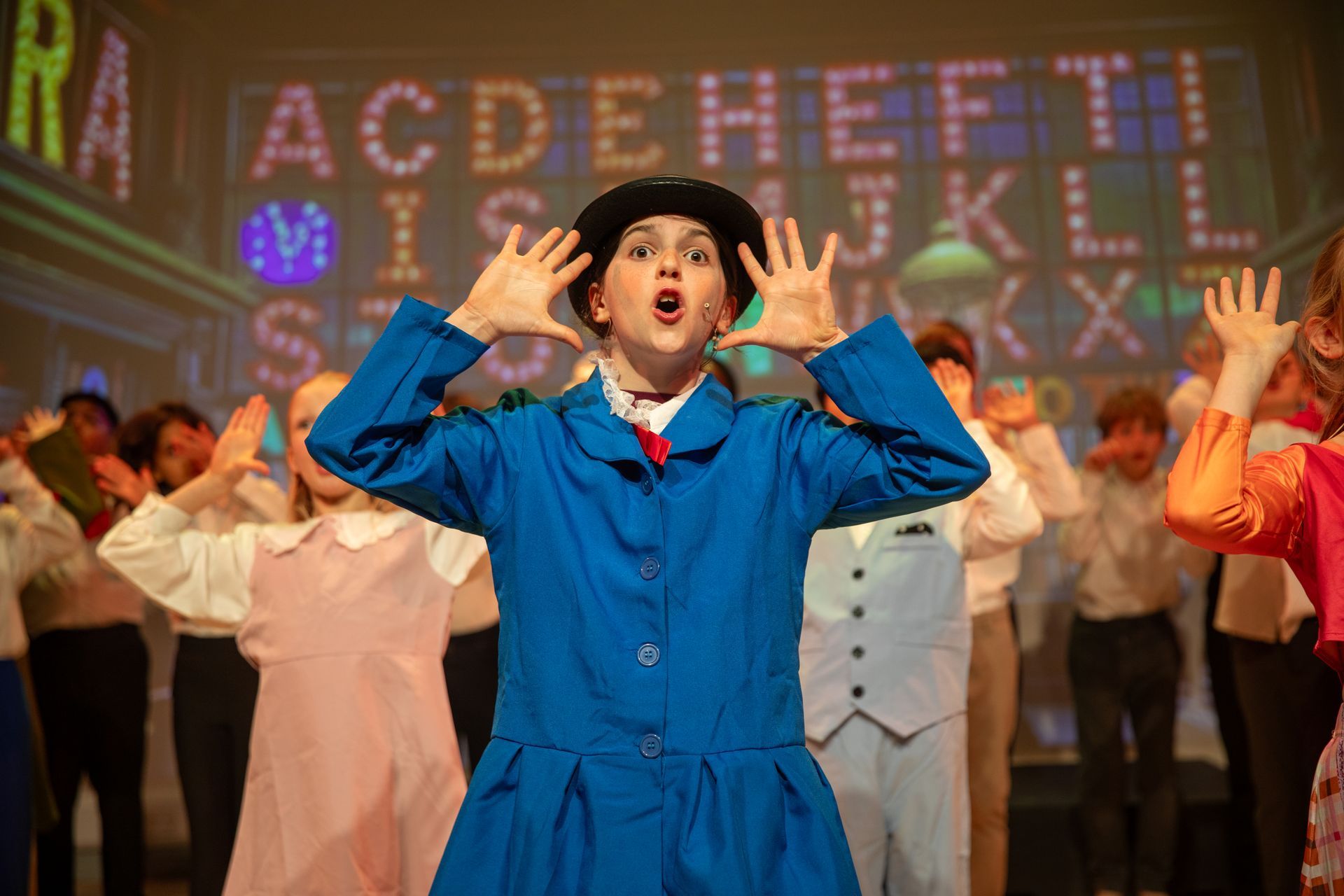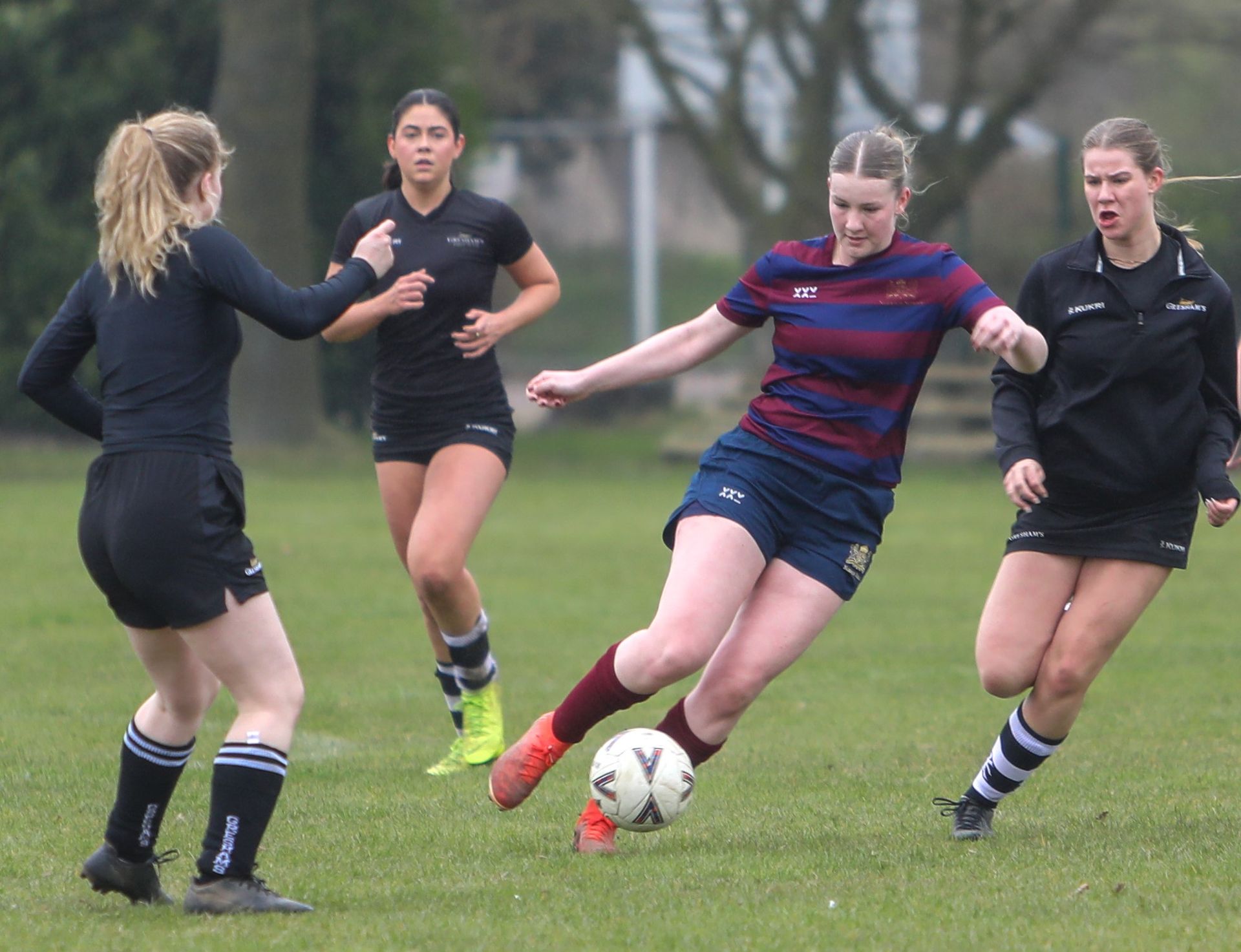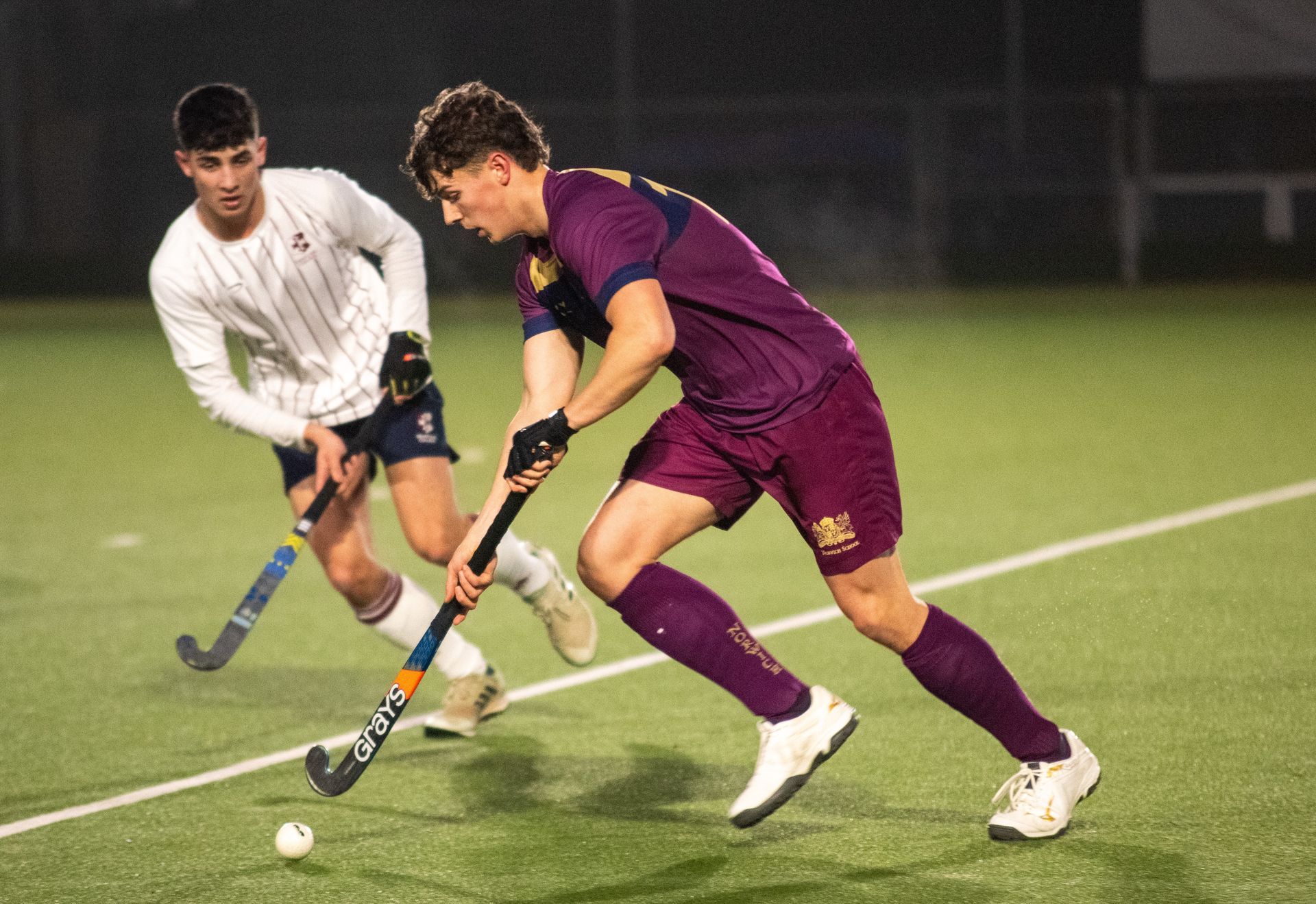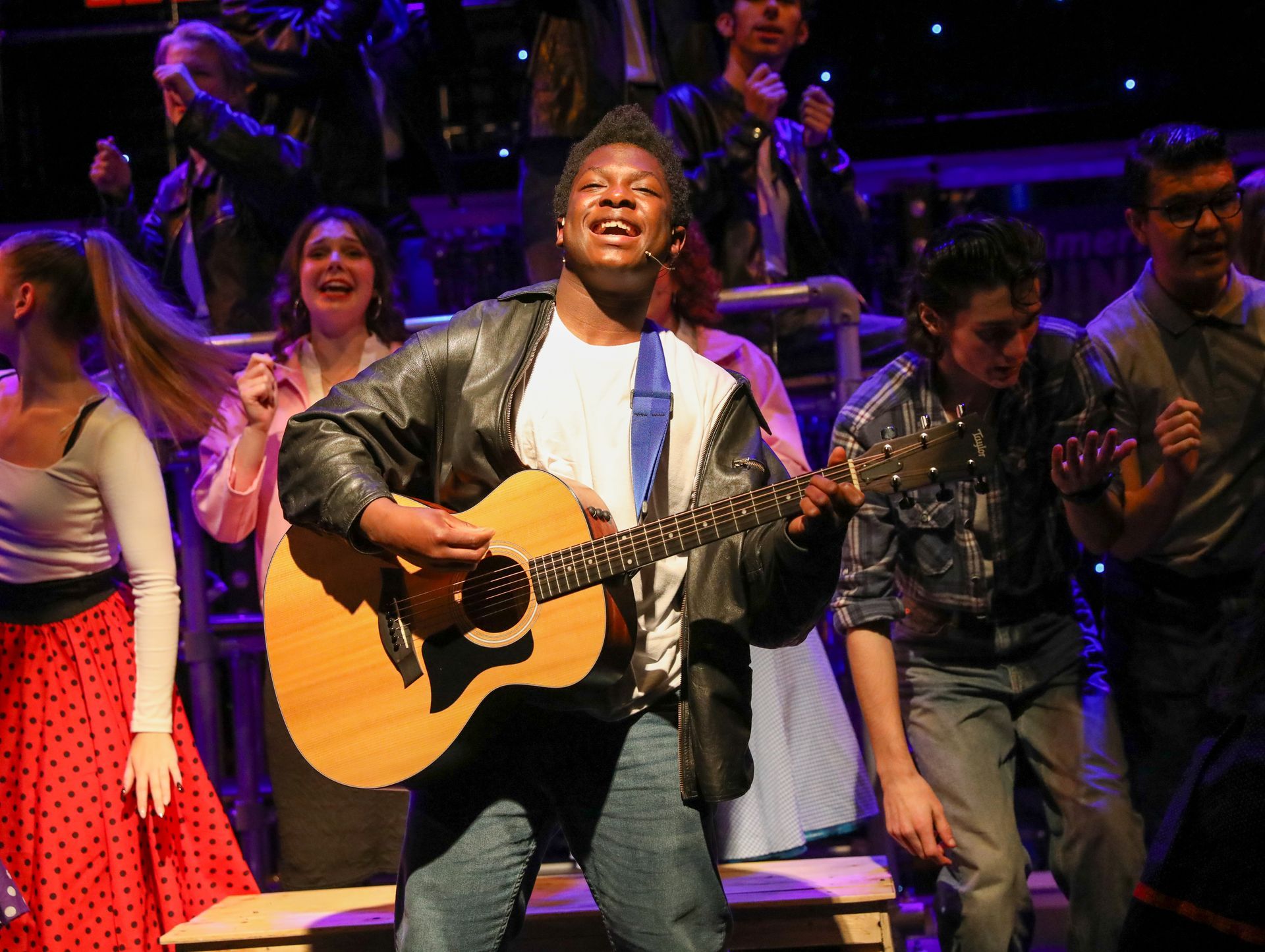Norwich School is a co-educational, independent day school
Norwich School is an independent, co-educational day school for pupils aged between three and eighteen.
Set in the beautiful grounds of the city’s historic Cathedral Close, the school is a traditional yet lively place to learn and combines a vibrant, imaginative culture with values of scholarship and mutual respect.
Discover More
Latest News
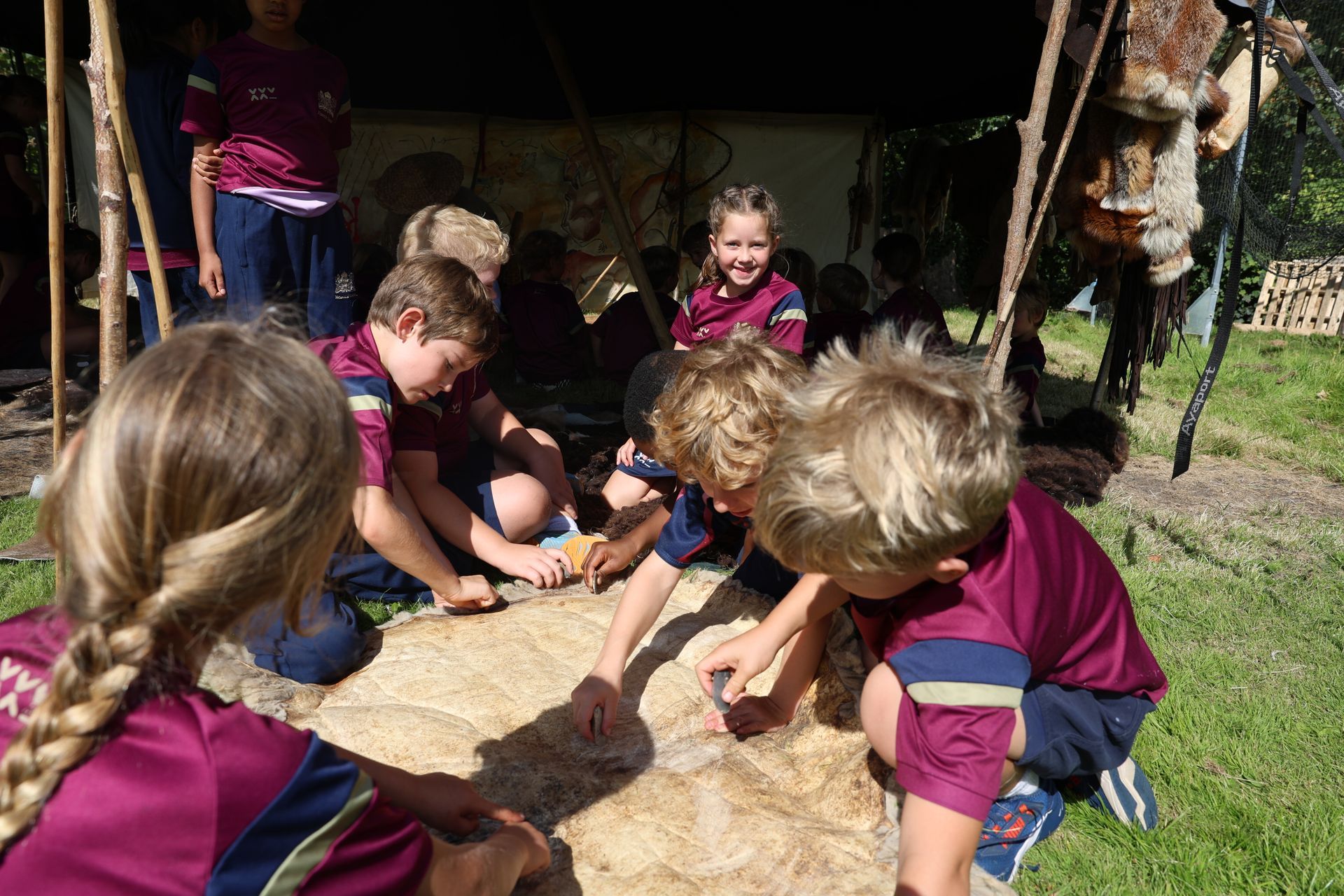
Lower Twos had a wonderful Stone Age Day, immersing themselves in activities such as tool-making, fishing techniques, and learning about the hides. They built a fire, cooked fish over it, which they all then tried, and some even bravely tried the eyeballs! Using tools and instruments made from bone, the children thoroughly enjoyed the experience and are eager to continue exploring this era in their Topic lessons throughout the Michaelmas term.
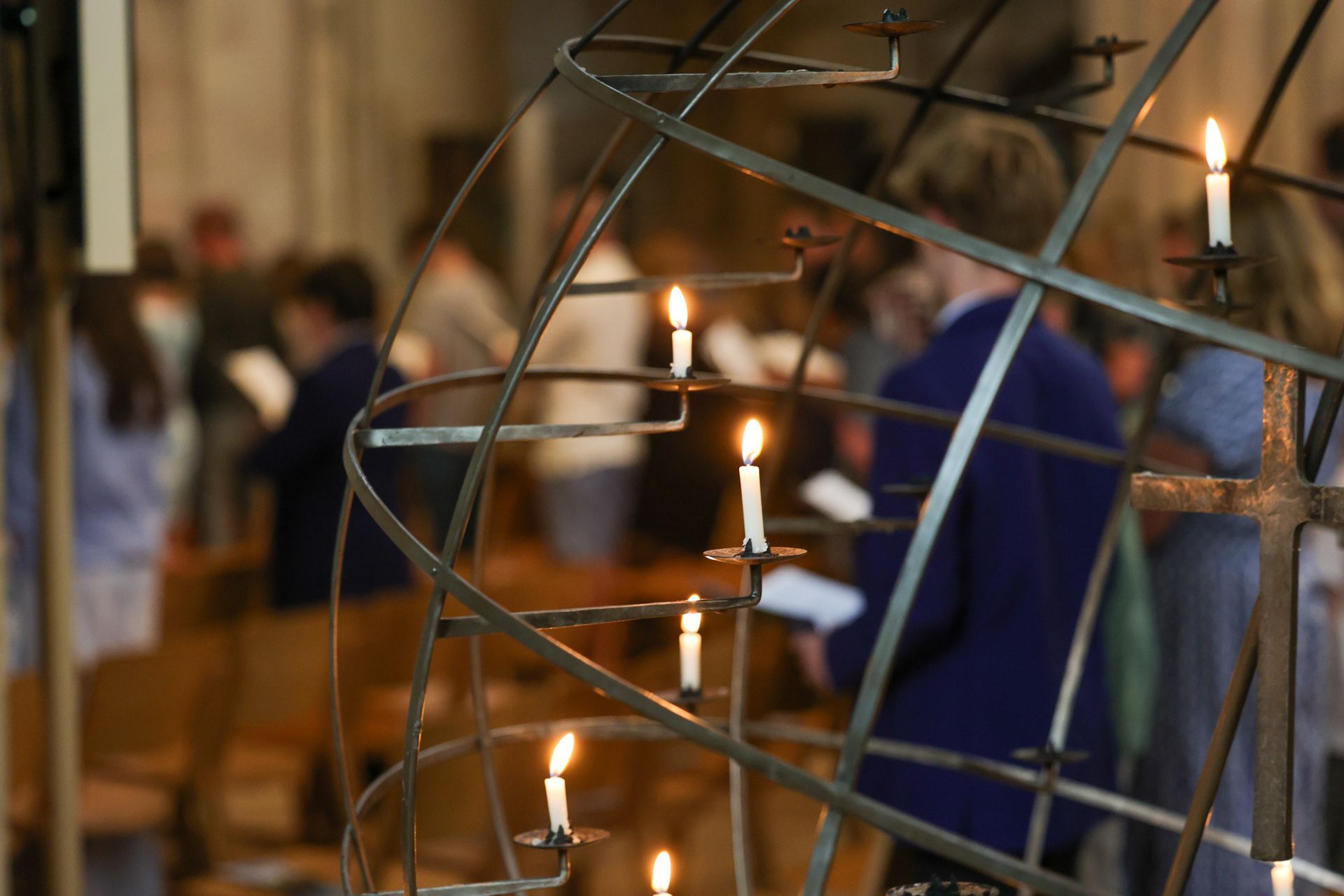
On the first Sunday of term new pupils and their families were greeted with refreshments and invited to a Welcome Service in the cathedral. The reflective words of evening prayer were accompanied by an poignant address from the Head, Steffan Griffiths, and two pieces beautifully sung by Norwich School’s Chapel Choir. Various pupils led the readings and placed familiar objects from school life on the cathedral’s altar during the prayers, expressing their hopes for the year ahead. The service was a chance to sit back and reflect but also to look ahead to an exciting term and academic year. We hope everyone enjoyed the service and that our Norwich School families had a taste of what goes on in our services and assemblies.
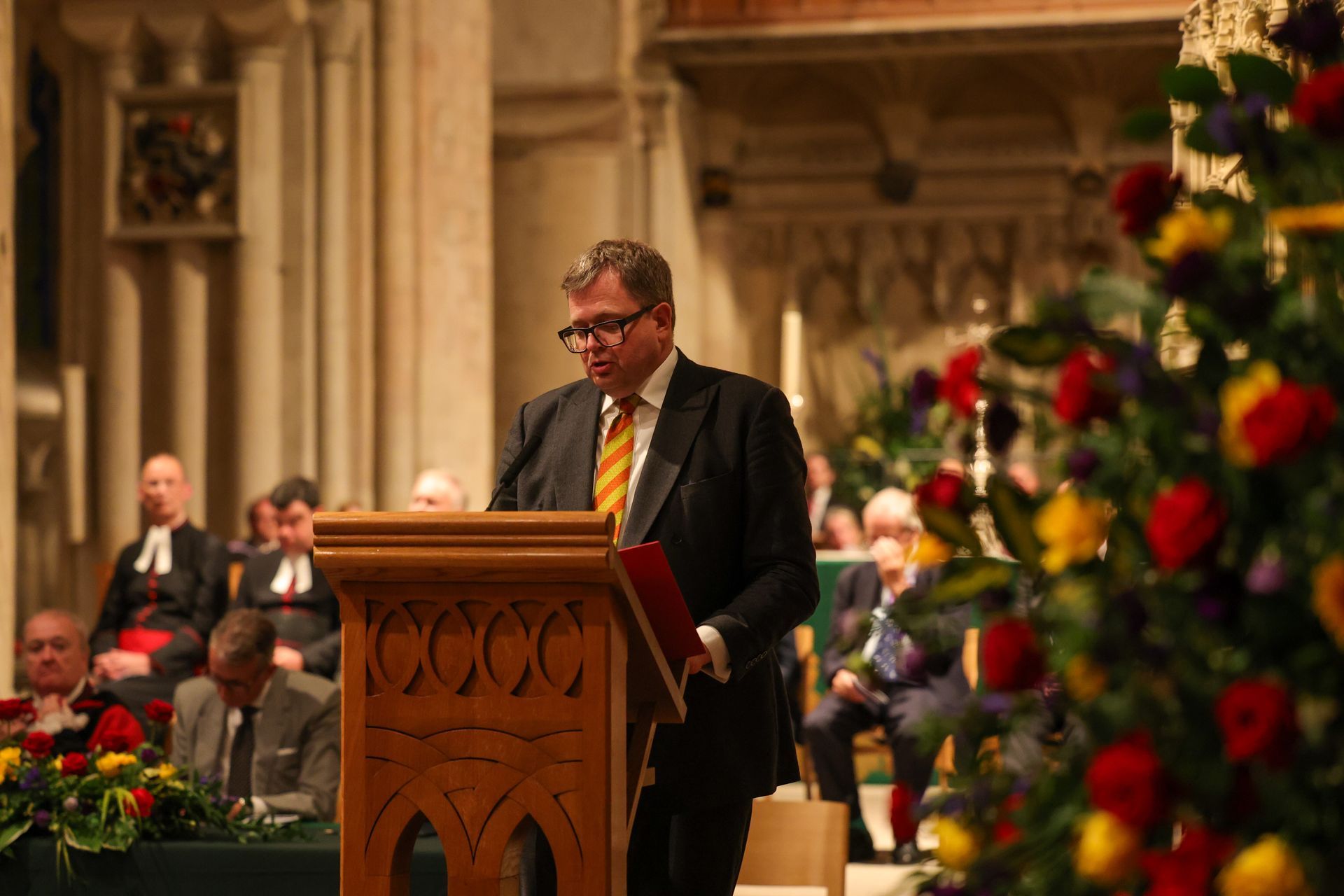
On Friday 5 September, we were honoured to welcome Tom Little KC. as guest speaker for Prizegiving 2025. Tom is one of the most senior and respected King’s Counsel in the country. He is now the First Senior Treasury Counsel, where he frequently appears in Court of Appeal and Supreme Court in cases of general public importance. An illustrious career has seen him secure successful prosecutions in some of the country’s most high profile and challenging criminal cases, including the appalling kidnap, rape and murder of Sarah Everard in 2021 and the brutal murders of sitting MPs Jo Cox and Sir David Amess. He is also a former pupil at Norwich School, an ON, and enjoys close links to Norfolk. We followed up with Tom after Prize Giving….. When were you at Norwich School? From 1982 to 1991. What House were you in? Coke What did you study for A Level and what did you go on to study at University? History, English and Politics. I studied History at Nottingham University before then undertaking the Law Conversion Course. Can you tell us a few career highlights since leaving school? Being appointed Treasury Counsel in 2012, taking silk in 2017 and the successful prosecution of Wayne Couzens in 2021. What was your fondest memory of being a pupil at NS? Success and camaraderie on the cricket pitch including taking 8 wickets against Culford. What were your greatest life lessons learnt whilst at school? The importance of hard work, independence and teamwork. Are you still in touch with friends you made at the school? Yes, with a number of them including my oldest friend Oliver Duval who I have known since we were less than a year old and whom I see regularly. Returning as a visitor to the school for Prizegiving, what are the biggest changes you noticed? An even greater range of extra-curricular activities, the clear success of the school and positive advantage that the school is not just an all boys school as it was in my time. Looking back, what nuggets of advice would you give a young pupil today? There is nothing that you cannot do from Norwich School. You can read Tom Little’s inspirational address here: Good evening everyone. It is a huge privilege and honour to have been asked as an ON to present the prizes this evening. I left Norwich School 34 years ago but tonight it still seems like yesterday, that on a Summer’s Day in 1991 when the West Door opened and I processed down the Cathedral at the front for what I thought would be the last time in my life. I was carrying the Cross as a Chapel Choir Chorister. I had sung in that Choir for 8 years. Today I have been given the chance to turn the clocks back and to process yet again, but without a cassock, surplus and ruff but this time as your Principal Guest. 35 years ago was the last time I spoke in this Cathedral. It was in the Lower Sixth. I remember walking up those steps of the pulpit. It was a relatively daunting experience. But one thing that I want to say today and which is consistent with what I will say tonight is that Norwich School prepared me for that: whether it was singing as a chorister (and being told that you are singing a solo and even if you fluff it up you do it again and you do it well) or whether it was debating as part of the debating team or whether it was just part of school life and being tested and challenged by John Willday in Politics classes, whatever it may have been it prepared me to walk up those steps. I was a bit nervous. I don’t get quite so nervous these days, as the day job involves a bit of talking, but the school prepared me for that and for everything. You can and should all be very proud of your achievements and successes. They reflect so well not just on you, but also on your parents for the support and encouragement they give and to the efforts of this great school and its teachers and all of its support staff that have been referred to already. Indeed, it is a school that I am proud to have been part of all those years ago and without which I have no doubt that I would not have been able to have done what I have done in my career. It is the breadth of the education at this school and in particular the extra-curricular activities that set me on my way. I had, I think, looking back an assured Norwich School confidence. It is something that nearly all my friends from that year have. I have no idea where on earth it comes form, but we all have it. A belief, certainly that I had, that anything and everything was possible if you tried hard enough. I should also say this – not only should you be proud, but you should all be pleased that things have moved on from the Prize Days in my day. Back then it occurred in the Summer, invariably on a boiling hot day in St Andrews Hall. Every pupil had to attend. It seemed like it took all day. There was always a very long speech from the principal guest who seemed to be some old buffer, who appeared to be as old as the hills and who went on and on. I cannot believe that I now run the risk of being regarded by you as some old buffer. I can promise you though that this will not be a long speech. Indeed, in those days there were only about a third as many prizes but it still went on forever. I was looking back in advance of speaking today about my time at Norwich School. I had thought I had only won two prizes but in fact I won three when I went back through the old Norvicensians. The prize that I had forgotten about is the only one that still exists. The Cater Prize for German. That is still going strong and which Lucy Hornbrook was awarded tonight. In those days it was a prize for effort in German rather than for achievement. I would not have won it if it had been for achievement. The other two prizes I won were the Stepheson Prize for Local History which I won twice. That does not exist anymore I see. You had to write a very long essay on Local History. I am fairly sure that I was the only entrant in the two years that I won because in the only other year I entered another pupil beat me. So, in reality you have all already beaten me in your achievements tonight by the prizes you have been awarded tonight. There is much nostalgia in much that I have said and am going to say. I was struck by the number of former teachers, and also Chris Brown as headmaster, whose names appear in the prizes that have just been awarded. They bring back memories in particular Mike Wilson and the wall bars. That is something that you would not understand unless you were at school in the 1980s and 1990s. There are three topics that I want to cover briefly. Like any good advocate should do, I will tell you what they are and then briefly develop the topic. First , and which has been trailed already, the importance of the law and the rule of law Second whatever you want to go on to do, thinking like an advocate will always help you Third why you should not ignore law as a potential career The importance of law and the rule of law The rule of law when I was at Norwich School was very much run by one man, Alan Arnold. He was the Deputy Headmaster who would put the fear of God into you whether you had done something wrong or even if you hadn’t done anything wrong. We live in uncertain and unsettled times. That means that respect for law and order and the rule of law is more important than ever. Lawyers are not universally popular and there are a number of aspects of the current application of the ECHR which are problematic. However, the rule of law is integral to our national and economic security. It prevents abuse of power, tyranny and potential chaos. It allows individuals and the Government to be held to account if appropriate. Lawyers and Judges are integral to that, and they are not the enemies of the people. Shakespeare in Henry VI Part 2 famously wrote “Kill all the lawyers”. In fact, that statement when properly understood in its context was supportive of lawyers because the need first of all to kill not just some of the lawyers but all the lawyers was by those wanting to seize power and control. Beware all criticisms of lawyers and Judge. Some may be justified but not all of them. Why thinking like an advocate is likely to help you whatever career you choose Advocates should think logically. It is the art of persuasion in order to win. Persuading the jury that the person I am prosecuting is guilty of the charge they face. That involves a lot of thought and preparation. Thinking about the points to make. The order in which to make them and the link between them. You also have to think about points the other side will make and seek to be able to answer or demolish them or to acknowledge they have force but why on this occasion they are not critically important. That logical approach is important when writing essays at A level and University, but it goes well beyond that. Many other jobs involve similar skills of presentation and persuasion. In some respects, I am no more than a salesman selling my case. So whether it is marketing or to win a contract or as a Politician or to encourage your fellow partners or staff about a particular course of action you should think like an advocate. Important decisions in life should be taken with careful and logical reflection having weighed up the pros and cons. You are also never too young to start to think like a lawyer. As I said it is integral to essay writing but even before that persuading your parents of why you really should be allowed to do something that you would like to do (like going to a party) but they are dubious or not happy about. Stroppiness and stamping your foot does not work in Court and it will not work at home. Think about the points that your parents will make about why you cannot do something and work out what logical points you can make against them. I appreciate by giving that last piece of advice I am running the risk of alienating a large part of the audience here this evening. Sorry. Don’t ignore the possibility of becoming a lawyer I was called to the Bar in 1997. So nearly 30 years ago. I can hand on heart say that I still love my job. That is rare in life. I still jump out of bed every morning looking forward to the day ahead and the rollercoaster world of prosecuting a murder or terrorism trial at the Old Bailey. It is enormously enjoyable and hugely rewarding professionally. We will always need lawyers and your success in whatever subject means you have the acumen to succeed as a lawyer. Whilst AI will have an impact in certain areas of law it will never replace the need for an advocate in Court nor many other legal roles. So do not be put off. And do not be put off by this. I always thought I wanted to go to Oxford. They rightly rejected me. But when I was at Nottingham University the careers advisor said ‘do not go to the Bar you did not go to Oxbridge and so you will not succeed’. That careers advisor did not appreciate that my Norwich School assuredness and drive and determination meant that I was not going to accept his negligent advice and so on I went. That is a reflection on the education I received at Norwich School. I want to finish where I started with some more nostalgia about the success that you can have at this school and importantly after this school. Rather than get an ABC car or more accurately a Veezu car at Norwich station when I arrived earlier today I walked along the river and over Bishop Bridge and into the Close. Past the Lower Close reminiscing on many cricket matches played on that field including my last catch in the Upper Sixth to win the game. Then up to the Barberolli Room recalling winning the House Music solo singing Competition (but having heard Lana sing this evening I would not have won against her) and then down to the Chapel. Then to the Refectory. I was concerned. The food in my day was awful. Much has changed at Norwich School including the food which this evening was excellent. Looking back now I loved my time here. Cherish your time at this great School but be assured that you can build on your successes today and be assured like me that anything and everything is possible at and after Norwich School.
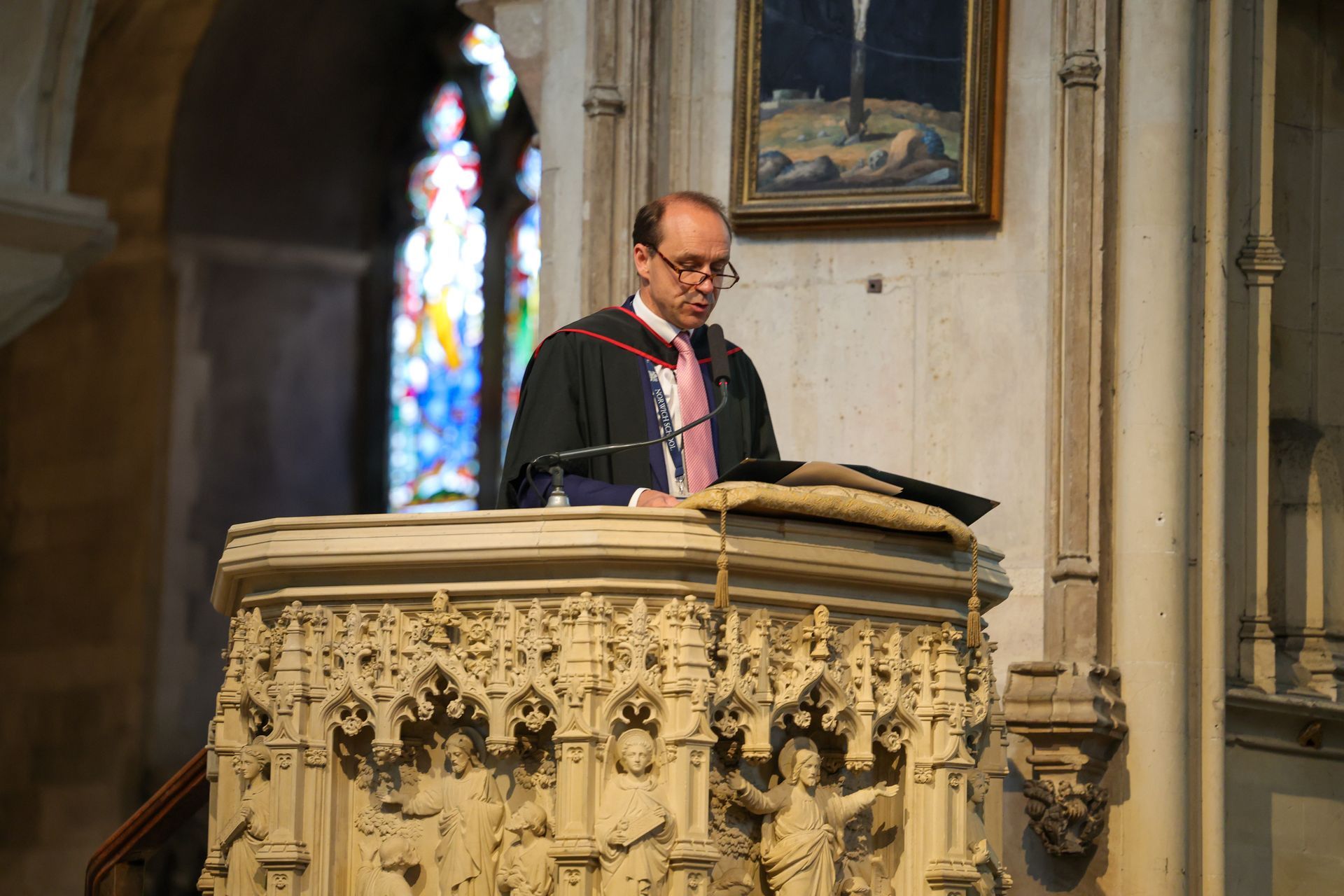
Welcome to the start of the new academic year. Whether this is a return or your first year, it is a delight to have the 25/26 Norwich School community together in the Cathedral. Some of you are entering your last year of school and are already thinking specifically about UCAS applications, apprenticeships and predicted grades. Our new Lower Sixth have the exciting prospect of new subjects, new uniform, new friends and new opportunities. Others are in the middle of or entering the GCSE years and focusing on setting up strong work habits to cope with an increasing workload. Further down the school, you may be starting Lower Five or Lower Four and thinking about how the bigger year-groups will work out, both academically and socially. Upper Four are involved here too; no longer the youngest in the school, we look to you to be welcoming and set a good example to those around you. Whichever stage you are at in your Norwich School journey, I hope you are ready to make the most of another year of education in Cathedral Close, this extraordinary learning environment that we are fortunate to enjoy. I saw a phrase over the holiday which may prove a helpful guideline as you establish your priorities. It was written in the changing room of the British and Irish Lions rugby team during their summer tour of Australia. The phrase was “We go beyond” and I invite you to reflect on it: “we go beyond”. Initially, I thought it was a simple encouragement to try hard, something which is necessary in a sport as physically exacting as rugby union, as we are seeing on our TV screens as the Red Roses attempt to win their home women’s World Rugby Cup. However, these encouragements for effort can quickly morph to a post-game stereotype of “giving 110% and being over the moon at the end of the day”. I would not draw such glib platitudes to your attention. I am also cautious to draw attention to changing room culture; we have made much progress at Norwich School in recent years to leave behind the macho toxicity that can sometimes be found there. However, the head coach, Andy Farrell, is a renowned motivator so I reflected more on what might be behind the phrase, regardless of one’s interest in rugby. For those unfamiliar with the Lions rugby tour concept, it only happens once every four years as the home nations of England, Scotland, Wales and Ireland produce a composite side made up of the best players from each team. It is a romantic concept which is unusual in modern elite sport, tying into supper table conversations about the best team and the fantasy league or FIFA game models which are so popular. The challenge to create tactical and attitudinal cohesion from players who are typically on opposite sides must be significant; “we go beyond” is a call both to demand more of oneself and to contribute to the overall dynamic in order to create a culture of success. What might such a process mean in practice for us at Norwich School? Some of you may remember your Welcome Service from the start of the year and, if you are joining this term, do come with your families on Sunday afternoon as it is a lovely occasion. In it, I use the following phrase in my address: “Be the one to do the extra practice question, the extra lap, the extra rehearsal but also to be the one to volunteer, to help your friend, to open the door, to offer a smile”. It is perhaps our version of “going beyond”: involving yourselves in the different things we offer, both in and out of the classroom, but also contributing more than one might expect in our community; being helpful and supportive to others; assisting others in the way that you would want to be assisted, especially when things are hard. If each of us takes such an approach, we will create an extraordinary community in action for the coming year, one where expectations are exceeded and the sum is greater than its parts. This line of thinking opens up an extra dimension of Andy Farrell’s strapline for the Lions: “We go beyond” becomes a voyage of exploration where we go to places that have not yet been visited and accomplish achievements that had not been anticipated. The Lions certainly wanted to set precedents, securing their legacy by being unbeaten. I am no less ambitious for Norwich School in this coming year: if each of us “goes beyond”, we might take ourselves further than was thought possible, both individually and collectively. Much of the planning and attitude we show is in our control and I hope you talk to your family, friend and teachers in order to set exciting targets for yourselves. However, we should all acknowledge that we cannot be in charge of everything and we should be ready to react during the coming year. I like the sailing phrase: “we cannot control the wind but we can adjust the sails”. Part of “going beyond” is an appropriate individual and collective reaction to our changing environment. So I finish with an encouragement for you to practise enjoyment, to be intentional about creating time and space for things that make you smile, give you pleasure or help you to unwind. “Going beyond” should not be a relentless chore and I am keen that you experience joy at school and at home in the year ahead. Christine Webber, the EDP columnist, talks about enjoyment as a muscle which needs exercising: “build high spots into every day…keep a check on how often you smile (at someone or something)…when you put effort into keeping up your levels of enjoyment, you become more likely to notice and take pleasure in happy happenings”. I agree with this, so my key concluding message is to encourage you to be productive and ambitious for the coming year (remember “we go beyond”), but this should not be instead of or at the expense of looking after yourselves. Indeed, the ideal is that we enjoy our programme of activities sufficiently that we want to commit to going be yond in them. Overall, there should be enough space and rest to allow your whole programme to be sustainable. It is great to start the year with you and I look forward to seeing you around school in the coming days


